




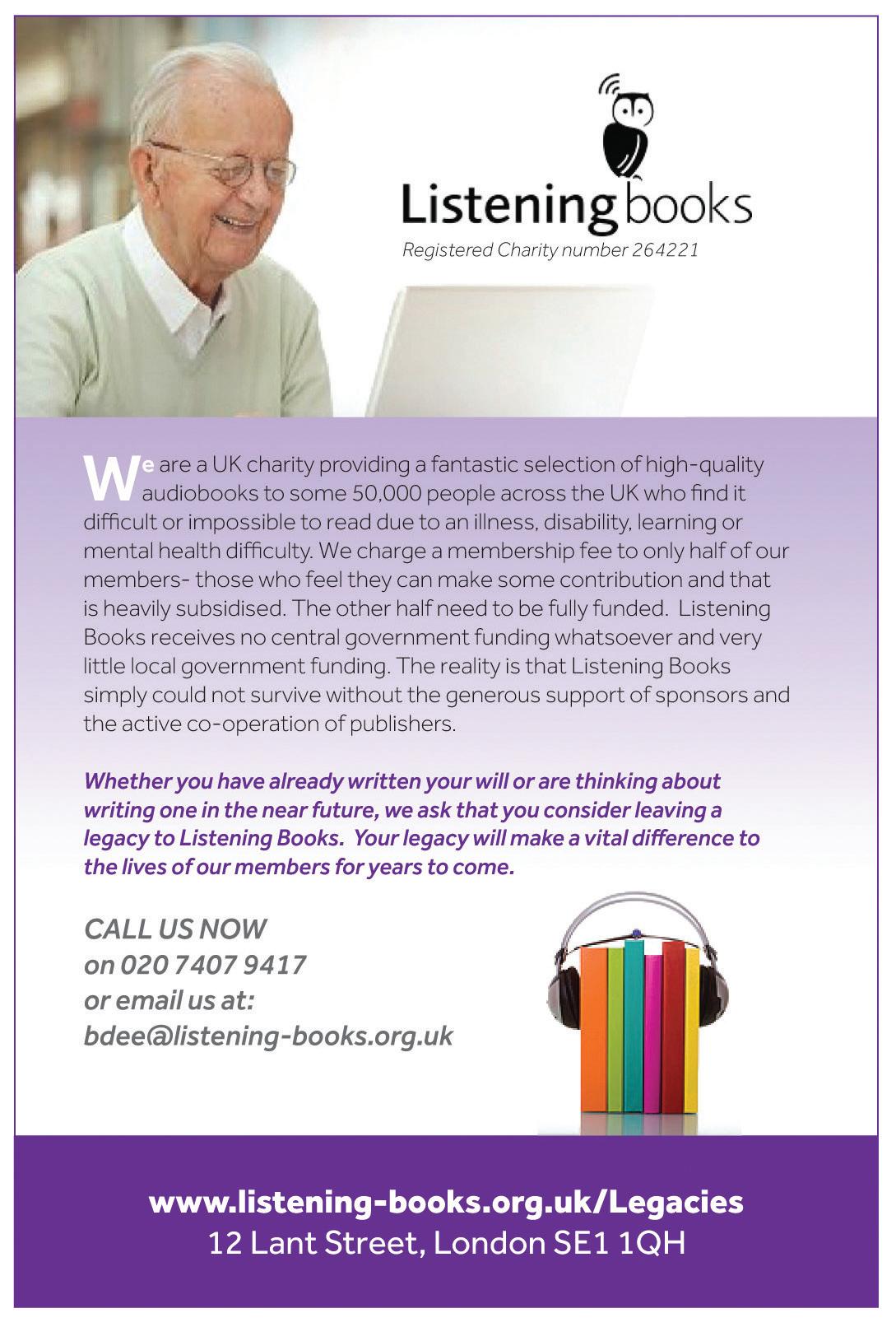







 Fenners Chambers
Fenners Chambers
Nowthe top-ranking barristers chambers in the East of England, this year marks the 50th anniversary of the founding of Fenners Chambers in Cambridge. Created in 1973, initially an annexe of an established chambers in London, as the brainchild of Kenneth Wheeler, a senior barrister in those chambers who saw new opportunities opening up for the legal profession, Fenners has since been on a journey of unalloyed growth and success. Its current ranking confirms its status at the forefront of exceptional legal service in East Anglia. In celebration of the anniversary, one of its founder members, Michael Yelton, later judge of the Cambridge County Court, and former head of chambers, Paul Hollow, came together to chronicle its history in Fenners Chambers: The First 50 Years.
Michael Yelton recalls that in the early 1970’s the barristers’ side of the
legal profession was still concentrated in London and a handful of major cities such as Birmingham, Manchester, Liverpool and Leeds. Few barristers practised outside these urban hubs. Indeed, it could be hard even in the great provincial cities. As Yelton notes, as an example “the unofficial rule then was that if a member of provincial chambers took silk, he or she (nearly always he) had to move to London, and that undoubtedly handicapped the development of the Bar across the country,”. Wheeler and his colleagues saw an opportune moment to challenge the status quo, establishing the chambers in Cambridge. Until then, solicitors in mid-Anglia had to go north to Nottingham, east to Norwich, west to Birmingham or to London to brief barristers.
From its modest beginnings with just six young members, Fenners has undergone a remarkable journey of growth and development. Over the

years, it has expanded to an impressive 54 members, its size a testament to its enduring success, making it easily the largest and most successful chambers in the East of England. This growth has been built not only on the ability of its legal members but on its clerking and management operation, led since 2007 by Paul Green, formerly senior clerk of a major London chambers who was attracted by Fenners’ reputation and ethos.
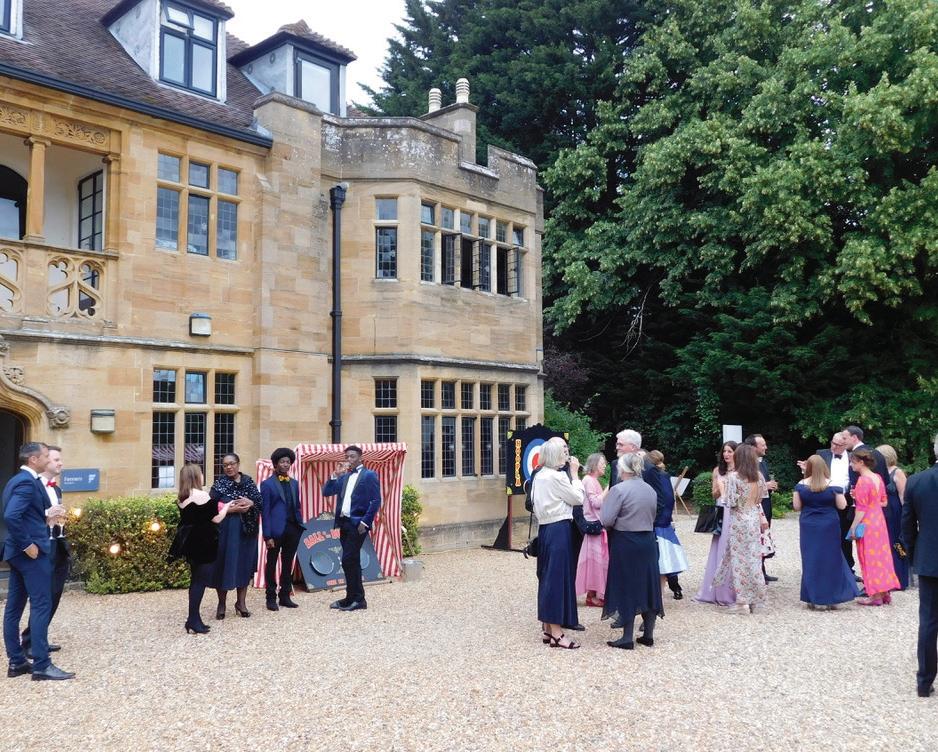
Alongside this growth, the diversity of the chambers has flourished. Its membership is almost equally balanced between men and women, well above the national average of 39.7% of women at the Bar, according to the Bar Standard Board’s 2022 Diversity report. Lindsay Davies, who joined in 1977, became the first female Head of Chambers in 1998, later becoming a County Court Judge. Araba Taylor, who joined Fenners from London chancery chambers in 2009, was the first person from Fenners to be awarded the prestigious title of “Bencher” of her Inn of Court. This is a battle not yet won, however, and Fenners maintains its commitment to diversity.
A reflection of its quality is the number of members who have been appointed judges in due course, particularly to the County Courts of East Anglia. Whilst Lindsay and Michael have now retired as judges, former member Liza Gordon-Saker succeeded Lindsay as Designated Family Judge for Cambridgeshire and has been joined in the local County Courts by her former Fenners’ colleagues Robin Chaudhuri and Roderick Spinks.
To celebrate the 50 years, Fenners hosted a Golden Anniversary ball at Chambers on the 1st of July. Members of chambers, their clerking and business teams, were joined by former staff, judges, and solicitors to celebrate Chambers’ history and the remarkable contributions members present, and former, have made to the legal profession. Alongside celebrating the anniversary, guests also supported Chambers in raising nearly £5,000 for the Arthur Rank Hospice Charity, and Coram Children’s Legal Centre. Commenting on this milestone, Andrew Gore, who joined in 1975 and is now the senior member, said “In the early years some people regarded us as merely a band of young upstarts. We certainly disproved that. Having grown from strength to strength, with over 50 members by our 50th year, I’m proud of the reputation we have built across the east of England and look forward to more success in years to come.”
Those interested in reading Fenners Chambers: The First 50 Years, can find a copy on the Fenners website at fennerschambers.com/50_ years/
DearValued Member.
I am delighted that Fiona McLeman of FM Family Law and Tom Fairley of ARM have joined the committee. Fiona will lead on corporate sponsorships. Tom will be our Hon. Secretary.
I was very pleased that we held a webinar on the Menopause and Andropause. The menopause can be a hugely challenging condition for many colleagues and a greater understanding of it by all is to be welcomed.
Looking ahead, I am delighted to confirm that Sam Fowles (Barrister) will be giving us a talk on threats to the rule of law on 22nd November at Cambridge University’s Faculty of Law.
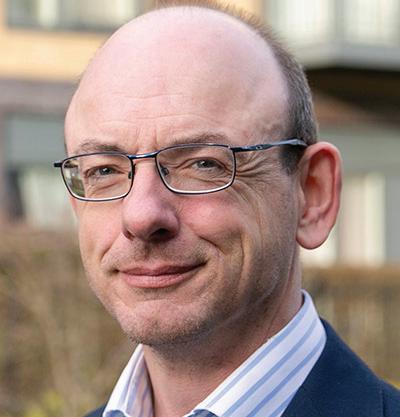
Sam has been involved in a number of important rule of law cases, including the illegal prorogation of Parliament. We are also holding an event with Judge Robin Chaudhuri on How to become a Judge. We continue to develop our relationships with the universities, with John Wright leading. We will be holding a ‘career in law’ event with ARU at their Cambridge campus in December and Scott Smith is arranging a Diversity Network Event; more details to follow.
We continue to look for interesting and topical content from members about important cases or deals of note. Please contact the Editor, Kate Harris, for details.
Best wishes, Michael
President
Michael Frape Ashtons Legal
Vice-President
James Allen Birketts
Honorary Secretary
Tom Fairley, Arm Treasurer
Gary Hanson
Barristers Rep
Joshua Walters Fenners Chambers
Corporate Partnerships Officer
John Wright Woodfines
Corporate Sponsorship Officer
Fiona McLeman FM Family Law
Equality, Diversity & Inclusion Officer
Scott Smith Howes Percival
International Relations Officer
Melissa Barker Birketts
In House Lawyers Rep
Anna Mortenson Nichino Europe
Junior Lawyers Division Representative
Jonathan Dattani Ashtons Legal
LEA Officer
Raina Victor Endomag
L&D Officer
Chris Hoole Appleyard Lees
Parliamentary Liaison Officer
Chris Thomas Appleyard Lees
Patent Attorneys Rep
Anwar Gilani Venner Shipley
Peterborough Rep
Umrah Buckley BSH Home Appliances
PR & Social Media Officer
Josie Beal Birketts
Publications Editor
Kate Harris Birketts
Social Events Officer
Joanna Cotgrove Ashtons Legal
Sole Practitioners and Small Firms Rep
Sophie Scotcher Myers Law
Website Officer
Charlotte Vallins Ashtons Legal Administrator
Penelope Harrington
Wednesday 11 October
Main Committee
On Zoom
Wednesday 18 October
Management Board Committee
On Zoom
Wednesday 1st November
Coaching, Sponsoring, Mentoring webinar with Antonia Bowring
On Zoom
Tuesday 7th November
Seminar: How to become a Judge
Birketts, 22 Station Road, Cambridge, CB1 2JD
Registration from 5.30pm
 Scott Smith EDI Officer Senior Associate, Howes Percival LLP
Scott Smith EDI Officer Senior Associate, Howes Percival LLP

In the UK, October marks Black History Month, a time to remember important people and events in Black history and celebrate the contribution Black people have made to society throughout the ages. Black history is often marginalised and so Black History Month aims to redress this by educating, informing and promoting events and history which may have been forgotten or ignored.
The history of the Black legal profession in the UK begins 140 years ago with Christian Frederick Cole. He became the first Black barrister to be called to the bar in 1883, having already blazed a trail as the first Black African to study at the University of Oxford in the years before. His attendance at University, involvement in College life and later appointment to the bar received much attention in society with the press depicting him in racist cartoons. Far from shying away from the negative press, Christian defied those who opposed him and is recorded as impressing those in his chambers with his intellect and ability to argue a case. Today, Christian is commemorated by a plaque on Logic Lane opposite the law library of his college at the University of Oxford.
It would be another 50 years before the first female Black barrister would follow in Christian’s footsteps. Stella Jane Thomas made history in 1933 when she was called to the bar by Middle
Temple aged 27. Stella was known for her activism and became a founding member of the League of Coloured People, a civil rights organisation which aimed to promote and protect the social, educational, economic and political interest of its members and improve relations between Races. After a short time at the UK bar, Stella moved to Sierra Leone where she became the first practising female lawyer in the whole of West Africa.
Despite these pioneers, progress towards racial equality in the profession remained slow, and it wasn’t until 1962 that Eric Irons would be appointed as the first Black magistrate in Britain. Eric had been recruited into the RAF whilst living in Jamaica, and was relocated to the UK. After leaving the RAF, he began to challenge the injustices and prejudices shown towards Black people that he saw all around him in the 1950s. After setting up community groups and challenging discrimination faced by Black people in his community, Eric would eventually become a magistrate. He sat on the Nottingham bench for 29 years before retiring in 1991. Eric was awarded an OBE in 1978 for his social justice work and an honorary Master of Arts degree from the University of Nottingham for his work improving race relations in the city.
It wouldn’t be until the 21st century that there would be a Black judge in the senior Courts. In 2004, the High Court appointed its first Black judge in Linda Dobbs. Even at this time there were still only 9 Black circuit judges. Like her predecessors, Linda worked hard to promote equality, diversity and inclusion within the profession, setting
up the Criminal Bar Association’s first equality and diversity committee whilst working as a barrister, and acting as senior liaison judge for diversity whilst on the High Court Bench. She has previously been named as one of the 100 Great Black Britons amongst household names like Shirley Bassey and Sir Trevor McDonald.
More recently still, the Law Society made history by electing its first Black President, when I. Stephanie Boyce was appointed in March 2021. She used her platform to launch equality, diversity and inclusion into the spotlight sharing her experiences growing up in a single parent household on a Council estate, and being told that the law was not for “people like her”. Like those before her, she defied those who doubted her and has since been awarded honorary doctorates and High Sheriff of Buckinghamshire for her leadership and services to equality, diversity and inclusion.
Bringing us to the present day, the most recent SRA diversity statistics, show that Black solicitors now make up around 3% of the profession - a figure largely commensurate to the total working population. Although this headline figure demonstrates significant progress over the last 150 years, it’s notable that even today there are Black lawyers setting new “firsts” and there has still never been a Black judge in the Supreme Court.
This Black History Month, I invite you to reflect on those that have come before us, fighting to make progress towards equality, and to look forward to bring about positive change to get closer to that goal.

The swearing in of Dame Sue Carr as Lady Chief Justice and President of the Courts of England and Wales on 2nd October was a matter of huge significance in our justice system and more generally. As the first woman to hold the post of Lord Chief Justice and therefore to lead the judiciary, this was a cause for much celebration of her achievement and pride in what has been achieved in achieving equality in our legal profession.
It is generally understood that democracy is in decline and under threat. The 2021 storming of the Capitol put US democracy under existential threat and the rise of populist authoritarian politicians and extreme right wing parties across Europe demonstrates that a significant minority have lost faith in democracy and are looking for ‘strong men’ or ‘strong women’ to fix the problems with simple solutions. As we have witnessed, the UK is not immune to this rising tide of illiberalism.
The most obvious example is the Government’s response to the small boats crisis. No one can doubt that illegal migration is a major challenge for any European country, including the UK and it will get a lot worse as the climate crisis worsens over the coming decades. Governments have a choice either to address the challenge within the existing rights-based framework or adopt populist policies, which may not deliver a pragmatic and workable solution but do play well to the prejudices of their base.
Populism requires the creation of a false narrative of division between the so-called right-thinking ‘people’ (hence ‘the will of the people’) and the liberal ‘elite’ as well as the stigmatisation of minorities. It is argued that the ‘elite’ (often stigmatised as being ‘woke’ etc.)
thwart ‘the will of the people’ by, for example, defending minorities. The populist politician then goes into battle with the ‘elite’ on behalf of the ‘people’. This is what is known as the ‘culture war’.
Part of that defence of minorities is lawyers enforcing human rights on behalf of individuals, who are often a member of a minority. Lawyers are therefore, by definition, part of the liberal elite. This puts populist politicians on a direct collision course with lawyers, hence the ‘lefty lawyer’ stigmatisation of lawyers who are, in fact, simply discharging their professional duties (as they are bound to do).
The modern liberal rights-based consensus emerged amongst the democracies after the appalling loss and devastation of the Second World War. It was agreed at supra-national level that any person, whatever their race, sex, creed, or sexuality was entitled to universal human rights. There was a very good reason for this decision. The democratic world had just witnessed the consequence of removal of basic human rights from minorities, and giving full vent to the ‘will of the people,’ as corrupted by authoritarian populist leaders. The most obvious and terrifying example being the Shoah.
Let us be clear. The name-calling of lawyers as ‘activist’ or ‘lefty’ lawyers by members of the Government is not a justifiable part of the rough and tumble of democratic politics; it is an attack on the justice system itself. A solicitor is, first and foremost, an officer of the court and therefore, a lawyer doing their job is an integral part of the justice system. Consequently, an attack on any lawyer for being a lawyer, is an attack on the justice system. That is a serious matter.
A prime example of this attack was in August when the Conservative Party sent the Daily Mail and other newspapers a dossier on immigration lawyer, Jacqueline McKenzie. McKenzie had represented clients facing deportation under the Government’s controversial Rwanda plan and therefore was your quintessential ‘lefty lawyer’. This was a very serious matter. Rather than stigmatising a group of
lawyers, the Conservative Party were identifying and stigmatising a named individual. There can be no doubt that by doing so they were putting McKenzie at risk of serious physical harm. This was an outrage against civilised norms and values, which we should all hold dear and defend.
The rule of law is a cornerstone of democracy. If it is threatened or diminished, our society will become less liberal, less democratic and less able to address the huge challenges coming our way. Of course, democracy and the rule of law will not disappear overnight. They can, however, be eroded over time. The transition from the Weimar Republic to the Nazi state took a long period of time and even after they had won power democratically, the Nazis removed human rights and oppressed minorities bit by bit till it was too late.
There are no guarantees that human rights are entrenched and inviolable. Witness the removal of abortion rights in many US states and there is a debate on whether the UK should withdraw from the European Convention on Human Rights. Such rights have to be fought for continually and the arguments for liberal values have to be won time and again. If they are not, those rights and values could be lost and our country would be the worse for that.
The rights-based liberal consensus is under attack as part of the culture war. As lawyers, we are obliged to uphold the rule of law and are therefore involved in the culture war whether we like it or not. The Law Society is doing its bit on behalf of the legal profession to uphold the rule of law and challenge the Government on such matters, but I am truly saddened that they should have to.
In July, the Law Society Council elected Mark Evans as Deputy Vice-President. Mark is a Welshman and represents Cheshire and North Wales. He was, for many years, a solicitor working for a High Street, but now teaches at the University of Law in Manchester. I am sure that he will do a fine job as an office-holder for the Law Society.
Artificial intelligence (AI) refers to the field of computer science that focuses on creating software and systems capable of performing tasks that typically require human intelligence, such as problem-solving, learning, and decision-making.
A range of AI software is now freely available to use online, from language models like Chat GPT, which mimic human like responses and natural language conversations, to a range of technology which enables the development of lifelike digital avatars and voice recordings.
The rapid rise of the use of these AI programmes gives rise to several issues, ranging from ownership of intellectual property rights and data rights in the content used to train the AI software to the potential uses of the output of such software, for example the emergence of 'deep-fake' videos featuring real individuals.
In this article Parliamentary Liaison Officer and intellectual property (IP) solicitor, Christopher Thomas explores some key legal issues that relate to the use of this technology, as well as recent legislative proposals to address this.
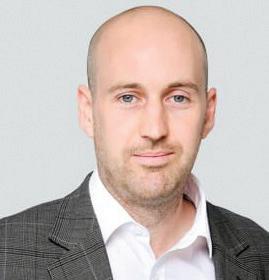
AI makes use of neural networks. This is a computational model inspired by the human brain, consisting of interconnected nodes that process and learn from data to perform tasks like pattern recognition and decision-making. Neural networks use probability algorithms to model and compute the likelihood that patterns in the input data correspond to specific outputs or classes. For example, to train a neural network to identify fruit, you would need to feed it with a large dataset of fruit images, including their features, (such as size, colour and shape) along with corresponding labels (e.g., "apple," "banana," "orange"), allowing the network to learn these patterns and features to correctly identify and classify new images of fruit.

Large language models like Chat GPT make use of natural language
processing techniques to understand, analyse, and generate human language. Similarly, this involves training large neural networks on massive datasets of text. The software attempts to match a query with the most applicable text from its dataset in order to generate its answers, enabling its AI models to comprehend and generate text in a way that resembles human language.
As AI technology progresses, content may soon be capable of being generated by artificial intelligence without a clear human input, however, arguably at present there is still often a close relationship between the data that is used to train the AI software and the content that is being generated.
If original copyright works are uploaded or used to train an AI programme, without the author’s permission, this may give rise to copyright infringement if there are no relevant exemptions for such datamining. However, once an AI model is trained, determining whether a copyright work has been infringed by the outputs of such large language models can become much harder to determine if there is not a clear and direct relationship between the content uploaded and output, or where the identity of works uploaded are unknown. These issues are currently being explored in the Open AI lawsuits in the US in relation to the operation of Chat GPT.
Three class actions in the US have been brought against the operators of
Chat GPT, Open AI Inc, and its affiliate companies, by a group of copyright owners including the author George RR Martin and comedian Sarah Silverman, alleging that OpenAI has infringed their original copyright works when training the AI programme. The central allegation is that because OpenAI is able to generate accurate summaries of books written by the authors, it must have been trained using copyright protected materials. It has been alleged in paragraph 1 of the Authors Guild pleading “at the heart of these algorithms is systematic theft on a mass scale” 1
In particular it is alleged that when it was created, GPT-1 was trained on BookCorpus, a collection of over 7,000 unique unpublished books, which it claims included books from a website Smashwords which were under copyright. It is further claimed that GPT-3 was trained on two large online databases, which are alleged to include Project Gutenburg – an online collection of 60,000 titles in which copyright has expired and “shadow websites” such as Library Genesis, which contain books uploaded illegally via torrent systems. It is noted that OpenAI do not disclose the identity of their datasets used for GPT-4.
Whilst the outcome of the litigation is uncertain, this does highlight the risk that “datamining” may pose to authors of copyright works. Once AI software has been trained, it can produce content which can be highly similar to / challenge human works, which presents particular challenges to those in the creative industries, including the music and publishing industries.
The potential for such software models is huge. According to a recent report by Accenture generative AI models such as Chat GPT have been estimated to potentially impact 40% of all existing work hours and in the case of the legal profession, 100% of working hours.2 Chat GPT recently sought a valuation of $90 billion, a threefold increase on its valuation earlier this year.3
Copyright exemptions for text and data mining for non-commercial research purposes were first introduced into s 29A
Artificial intelligence (AI) refers to the field of computer science that focuses on creating software and systems capable of performing tasks that typically require human intelligence, such as problem-solving, learning, and decision-making.
Mark Attorney
IP Solicitor
Lees IP LLP
In October 2021 the UKIPO held a two-month consultation period to explore the extent to which it would be willing to extend the existing exception for commercial research, indicating that it intended to extend the exception beyond research and academia.

In a report published by Sir Patrick Vallance “Pro-innovation Regulation of Technologies Review Digital Technologies” in March 2023, and government response, the importance of artificial intelligence in generating growth of UK digital technologies was highlighted. It was recommended that there should be regulatory flexibility to enable the development of these technologies and that the government should clarify the relationship between intellectual property and generative AI. Additionally, it was proposed that data mining of text and images for commercial research should be permitted and/or exempt from enforcement of IP rights, whereas IP rights and enforcement would apply to the output of an AI delivered product.
In response the UK IPO set up a working group to publish a code of practice in relation to good practice on the use of copyright, performance and database material in relation to the use of AI.
In response to the government white paper, and following concerns raised by a number of stakeholders in the creative industries4, the Culture, Media and Sport Committee published a report on Connected tech: AI and creative technology on 30 August 2023, recommending that the Government did not pursue plans for a broad text and data mining exemption to copyright.
The government is expected to put forward its plans towards the end of 2023, which it is anticipated may not include a broad exemption for data mining.
Another area of potential concern is the use of AI software to generate realistic digital avatars of real life individuals, making statements/ doing actions which are artificially generated. There are several existing areas of liability associated with generating such content:
To generate a “deep fake” video of an individual, AI software will need to be trained using images and videos of that person. The more images uploaded,
the more realistic the output. The use of photos and videos may be infringing without permission of the copyright owner. However, the copyright owner is not always the same person as the person featured in the content and where content has been obtained from videos/ materials online, it may be difficult to determine the source of the input data and the identity of the owner of the rights in the data.
Under the General Data Protection Regulation (GDPR), personal data is defined as any information that relates to an identified or identifiable living individual. This includes data that can directly identify an individual, such as their name, address, email, well as data that can indirectly identify a person when combined with other information, like location data, IP addresses, or online identifiers. The use of videos/ photos of individuals will likely constitute personal data and so their use without the consent of the data subject may contravene GDPR. Additionally data subjects have the right to prevent the processing of their personal data.
Where the likeness of a well-known individual is used without their consent to promote a business, such use may well give rise in the UK to the tort of passing off, as the use of the image would likely constitute a misrepresentation that the individual had endorsed the business activity without licence.5 Damages would likely be awarded based on the licence fee that would be payable if the celebrity were to endorse the use of the image.
Users of such AI software should also be aware that the terms and conditions of such software in most cases require any uploader to warrant that they own / have acquired all necessary consents from IP owners and from the owners of any individuals whose image or likeness is reproduced and indemnify the owner of the software from any third party claims in this regard.
Advertising services which make use of generative AI also run the risk of being misleading if the provider does not make clear which services are being generated
by AI. Misleading advertising’ is defined in BPR 2008, reg 3(1),6 as:
‘…any advertising which in any way, including its presentation, deceives or is likely to deceive the persons to whom it is addressed or whom it reaches and which, by reason of its deceptive nature, is likely to affect their economic behaviour or which, for those reasons, injures or is likely to injure a competitor’
The use of AI language programmes such as Chat GPT can by its nature generate inaccuracies and repeat content. Employers are advised and in most cases are taking steps to update their HR policies to ensure that employees do not use programmes such as Chat GPT without consent. Aside from professional embarrassment, clients commissioning original works will expect to own, or be free to use content they have paid for.
The potential benefits of the use of generative AI software means that it is likely that such technologies will soon become ubiquitous. The use of such technologies is already widespread, and as noted by HHJ Birss recently, has even been used in Court judgments.7
It seems inevitable that there will need to be a compromise between the rights of IP owners and the adopters of such technology. These boundaries have not yet been set, but as with the advent of most technologies, which pose a potential risk to the creative industries, such as video tapes and peer to peer file sharing software, the technology will remain here to stay and the legal profession will need to adapt quickly.
1 [Silverman et al. v. OpenAI, Inc., 3:23-cv-03416; Tremblay et al. v Open AI, 3:23-cv-03223; Authors Guild v Open Ai, 1:23-cv-8292].
2Gen AI LLM - A new era of generative AI for everyone (accenture.com)
3https://www.wsj.com/tech/ai/openai-seeks-newvaluation-of-up-to-90-billion-in-sale-of-existingshares-ed6229e0
4PCF-TDM-Letter-as-of-080822.pdf (publishers.org. uk)
5Irvine v Talksport Ltd [2003] 2 All ER 881
6Business Protection from Misleading Marketing Regulations 2008 (BPR 2008)
7Court of appeal judge praises ‘jolly useful’ ChatGPT after asking it for legal summary | Artificial intelligence (AI) | The Guardian
Thisyear’s Pro Bono Week (6 to 10 November 2023) is an opportunity to showcase the important role of the legal profession in providing free legal help.
Lawyers across the UK volunteer their professional help to those in need to an unparalleled extent, helping ensure access to justice for the most disadvantaged people in society. Many charities and community groups also rely on lawyers who provide pro bono help. However, it is important to state that pro bono legal services are not, nor can they ever be, a substitute for a properly funded system of legal aid.
There are various ways that solicitors, barristers and legal executives get involved in pro bono. Many law firms have dedicated pro bono or CSR/ESG programmes which their staff can get involved in. Law firms themselves can obtain advice, resources or projects from LawWorks, TrustLaw, and the UK Collaborative Plan for Pro Bono. See also the Law Society of England & Wales’ website for its pro bono “hub”. Barristers and their chambers are increasingly involved in pro bono through the Bar’s pro bono charity, Advocate, as well as through other initiatives such as FRU and Pro Bono Connect.
Last year’s Pro Bono Week 2022 saw a number of pro bono projects showcased, including:
• A cost-of-living clinic that a law firm launched in partnership with a local charity to provide pro bono legal help to those struggling as food and fuel prices surged.
• The Domestic Abuse Response Alliance, established by a collaboration of numerous law firms to provide pro bono legal advice and representation to survivors of domestic abuse in need of protective injunctions. Barristers also volunteer on this scheme.
• Advocate, the Bar’s pro bono charity, introduced a scheme entitled “25 for 25: The Pro Bono Challenge” to celebrate the pro bono work happening at the Bar.
• Finally, following Russia’s invasion of Ukraine, the Ukraine Advice Project was established to give UK lawyers the opportunity to support those fleeing the war in Ukraine and saw more than 600 immigration specialists volunteering pro bono to help over 4,000 people seeking refuge in the UK.
For more information on these and other ways of doing pro bono, visit probonoweek.org.uk/volunteering
Many of the organisations referred to above are involved in Pro Bono Week, along with law firms, chambers, legal societies, charities, in-house lawyers, law schools and universities. The Week in November will see a mixture events both internal or external, as well as the publication of reports and the launching of new initiatives.
Events in November will focus on three themes for 2023:
• Changing lives through pro bono Exploring how and why lawyers and law students across the UK transform lives through pro bono, including celebrating inspiring examples of pro bono and exploring the business case for legal volunteering.
• Maximising the impact of pro bono An opportunity to think about how to measure pro bono and to maximise its impact through, for example, collaborative projects responding to crises; focussing early advice on debt or housing; partnerships with the healthcare sector and incorporating evaluation into projects.
• Pro bono within ESG: from climate to sustainable development
Pro bono will be explored as a pillar of
an Environmental, Social, and Governance strategy, including how lawyers can help tackle the climate crisis, and how the Sustainable Development Goals can be championed.
A warm invitation is extended to everyone to get involved in Pro Bono Week, whether by organising an internal event at their organisation or by attending events arranged by others. For more information visit probonoweek. org.uk/events

Pro Bono Week is an opportunity to get baking to raise money for local advice charities through the Great Legal Bake! Star bakers or their organisations can visit rebrand.ly/ Great-Legal-Bake-2023
But it is not just events. Pro Bono Week is an important opportunity to use social media, websites and other comms to send messages to thank lawyers for doing pro bono, and for every organisation to highlight their commitment to pro bono. We have a comms toolkit with ideas at probonoweek.org.uk/media-resources
Finally, as the Chair of the Organising Committee which includes various pro bono charities, can I conclude by not simply encouraging you to get involved in Pro Bono Week, but to thank you as members of the profession for volunteering on a pro bono basis, at a time when the need for help could not be greater.

Pro Bono Week takes place across the UK this year from 6 to 10 November. Through events and comms it is an opportunity to recognise, showcase and discuss the voluntary contribution of the legal profession in giving free legal help to those in need.
For the latest updates follow @ProBonoWeekUK on X (Twitter) and LinkedIn
Pro Bono Week is a great time to arrange an event to promote or discuss pro bono. Many events are external occasions organised in partnership with others, while others are internal events for colleagues at an organisation. There are three suggested themes this year:
✔ Changing lives through pro bono
✔ Maximising the impact of pro bono
✔ Pro bono within ESG: from climate to sustainable development
For help planning an event visit probonoweek.org.uk/event-plans
Pro Bono Week is a perfect time to post on social media or your website about your commitment to pro bono, or to thank your volunteers, or to showcase a particular pro bono lawyer or project. #ProBonoWeek
For a toolkit & resources such as #IDoProBono posters visit probonoweek.org.uk/media-resources
Events you can attend will be added closer to the time at probonoweek.org.uk/events
For lawyers or organisations not yet involved in a pro bono scheme, Pro Bono Week is an opportunity to sign up, see probonoweek.org.uk/volunteering

Get baking with the Great Legal Bake and raise money for local advice charities.

Emma Wager joined FM Family Law in October 2023, having relocated from a Tier 1 law firm in London. Emma brings with her a wealth of experience in all areas of family law and is also a family law mediator.
Emma specialises in helping families through separation, including divorce, finances and arrangements for children. Emma is passionate in helping her clients to find a workable solution for their families outside of the court wherever possible and with the least amount of time, stress and acrimony, so that they may move forward as individuals in a positive manner. Emma also advises in relation to cohabitation matters and pre- and post-nuptial agreements. Emma is nominated for Family Law Associate of the Year in the CityWealth Future Leaders Awards which are taking place in November.
Emma says: “I am extremely excited to be joining the well-regarded team of lawyers at FM Family Law and I look forward to expanding my practice in the beautiful city of Cambridge".

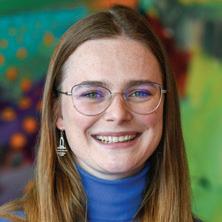



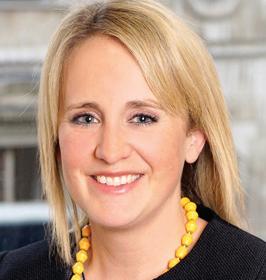
Penny Van Spall has joined Fenners Chambers as an experienced child law practitioner, specialising in both public and private law proceedings. Penny’s child law practice is bolstered by a background as a social worker and probation officer. She brings empathy and clear advice to cases where mental health issues and capacity require a carefully considered approach.

Here is a round-up of the latest moves, promotions and achievements of Cambridgeshire Law Society’s members…
Following an exemplary pupillage, Miriam Mallon has been successful in her application for tenancy and will become a full tenant this October.


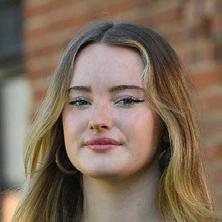
Ashtons Legal adds to its Commercial Property and Personal Injury Teams Solicitor, Daniel Ingle, joined Ashtons Legal’s Commercial Property team in July 2023.

Daniel specialises in landlord and tenant work and disposals of freehold and leasehold property. He has previous experience in telecommunications rights and property litigation which allows him to provide a unique perspective on the acquisition and disposal of property.
Ashtons’ also recently welcomed Milly Smith to their Cambridge office.

Milly is an Apprentice Solicitor working in Personal Injury. Also joining the Personal Injury team in Cambridge as an Apprentice Solicitor is Saima Salsabil who was previously working in the team as a Paralegal. Milly and Saima, along with Alexandra Maturoi from the Family team, are all training to be solicitors through the non-traditional route as apprentices. Ashtons Legal were one of the first law firms in the country to offer this alternative route into law.
qualified solicitors; Taking their seats, are Florence Paul (Regulatory and Corporate Defence) and Megan Simpkins (Commercial Property).
James Austin, Senior Partner at Birketts, commented: “On behalf of everyone at the firm I would like to offer my congratulations to our newly qualified solicitors. These individuals have worked exceptionally hard over the last two years, and we are delighted that they have decided to continue their legal careers with Birketts.”
Birketts is also delighted to have welcomed five new Trainee Solicitors to the Cambridge office on 4 September, joining a range of teams.
The five new trainees are: Daniel Fletcher (Planning), Havva Kaya (Commercial Property), Julian Martin Smith (Agriculture), Sofia Mitrofan (Corporate), Sophie Dowse (Commercial Litigation).
Birketts’ Cambridge office has proudly welcomed two newly
Matthew Newnham, Partner and Birketts’ Training Principal added: “At Birketts we are fully invested in training and nurturing our Trainees and it’s a privilege to guide them at this stage of their careers.

“We wish this year’s cohort the very best of luck and I look forward to supporting them on their journey with Birketts.”

Mills & Reeve advises on the construction of advanced cancer research hospital
Mills & Reeve advised Cambridge University Hospitals NHS Foundation Trust (CUH) on the procurement of engineering and construction company Laing O’Rourke, and the drafting and negotiation of contracts for the design and construction of the new hospital, which will be a 26,000m2 state of the art facility built in the heart of Cambridge.
The project is a partnership between CUH and the University of Cambridge in collaboration with Cancer Research UK and third sector partners and the hospital will assist with the NHS Long Term Plan, which was published in 2019 following the announcement of additional funding for the NHS by 2023/24, by providing space for NHS clinical vocation. It hopes to unite cutting-edge industry led research on the early detection of cancer and be a market leader in the way in which treatments are given to patients.
John Spicer, project lead for the Cambridge Cancer Research Hospital, commented: “I’m extremely grateful for the wide-ranging legal support that Mills & Reeve have offered us throughout our successful procurement of the principal supply chain partner, Laing O’Rourke, for the proposed Cambridge Cancer Research Hospital. The fantastic team have supported us from the start and remain our most trusted advisor.”
Professor Richard Gilbertson, research lead for the Cambridge Cancer Research Hospital, added: “This brings us another step closer to changing the story of cancer for patients across the region - and across the world.”
Alexandra Pike, partner at Mills & Reeve, said: “The Trust, in partnership with
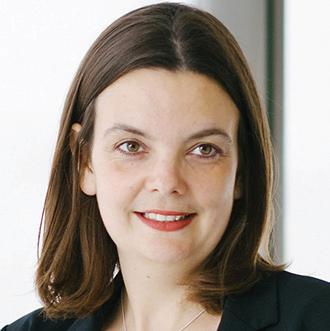

We are continuing to celebrate the successes of our member firms and to bring you news of the biggest deals and wins from across the County. Here’s what’s been going on this quarter…
the University of Cambridge, is one of the first hospitals to procure its principal contractor under the New Hospitals Programme."
Mills & Reeve has advised master developer Urban&Civic Plc on its acquisition of Waterbeach Barracks in a move that will see a major redevelopment of the former Royal Air Force (RAF) Station.
Urban&Civic, which has bought Waterbeach Barracks from the Ministry of Defence (MOD), has ambitious plans for the site which was once the airfield and barracks of the Royal Engineers. The 20-year development, to be delivered in stages, will provide 6,500 homes, five schools, extensive on and off-site cycle connections, public transport services and active travel schemes.
A town centre with health centre, shops and services and a range of community facilities, including parks, play spaces and sports facilities, will sit at the heart of the development, while 250 acres of green space and 34 acres of ecology habitats will provide a home for wildlife.
Urban&Civic, part of the Wellcome Trust, has been a development partner of the MOD since 2014 and, together with the Defence Infrastructure Organisation (DIO), it has achieved outline planning consent and commenced a major redevelopment of the site which is eight miles north of Cambridge.
Urban&Civic chief executive, Nigel Hugill, said: "The transformation of Waterbeach Barracks was grounded in belief and leadership. A major Government department actively releasing brownfield land for new homes to maintain local momentum that both anticipates and facilitates worldbeating economic growth in North Cambridge. In the process, realising
significant funds for new investment and properly joined up thinking.
“Urban&Civic will continue to nurture Waterbeach lovingly as a unique waterside community within enhanced and protected natural habitats, quite unlike any other place in Cambridgeshire. We look forward to continuing to build on the collective vision."
Sustainability is at the forefront of the design at Waterbeach. Materials on site will be recycled, and homes and civic buildings will all have low energy features, including air source heat pumps and electric vehicle charging points. Repurposing a former barracks and airfield will mean being able to reuse the historic core footprint of green spaces and buildings, recycling over 98% of the hard materials on site to massively reduce carbon use, waste and construction traffic in the development of the new community.
Protecting and enhancing the diverse habitats and the species they support, is also a key priority for the development of Waterbeach. This is all part of a strategy that will deliver a 20% net gain for nature from the development.
Caroline Hanratty, real estate partner at Mills & Reeve, who led the team advising Urban&Civic, said: “It was a huge privilege to act for such a visionary strategic developer which is turning brownfield land into vibrant new communities, providing premium commercial and leisure facilities as well as new homes and schools.”
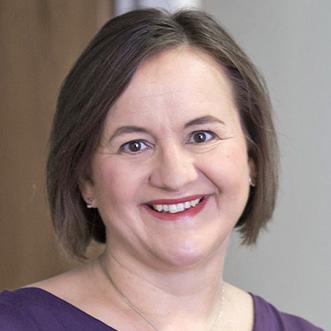
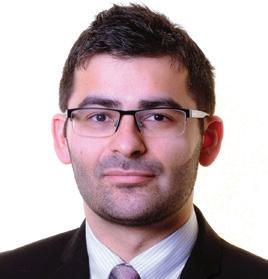
OurCharity Ball was a roaring success and brought Summer to a fantastic close. Many thanks to our sponsors and guests for making it such a memorable and wonderful night, and for helping us raise money for charity! But, all of this doesn't just happen overnight - our dedicated Committee put their hearts and souls into organising and running these events to give our community of aspiring lawyers in Cambridgeshire opportunities to network and learn. That's why, when big milestones happen for our immediate Cambs family, we like to shout it from the steeple-tops!
We are very pleased to confirm that our Vice President, Jonny Dattani, our Social Secretary, Abbie Melloy and our Publicity Representatives, Olivia Atkinson and Nicola Warren have all just qualified as Solicitors. We couldn’t be prouder of them!
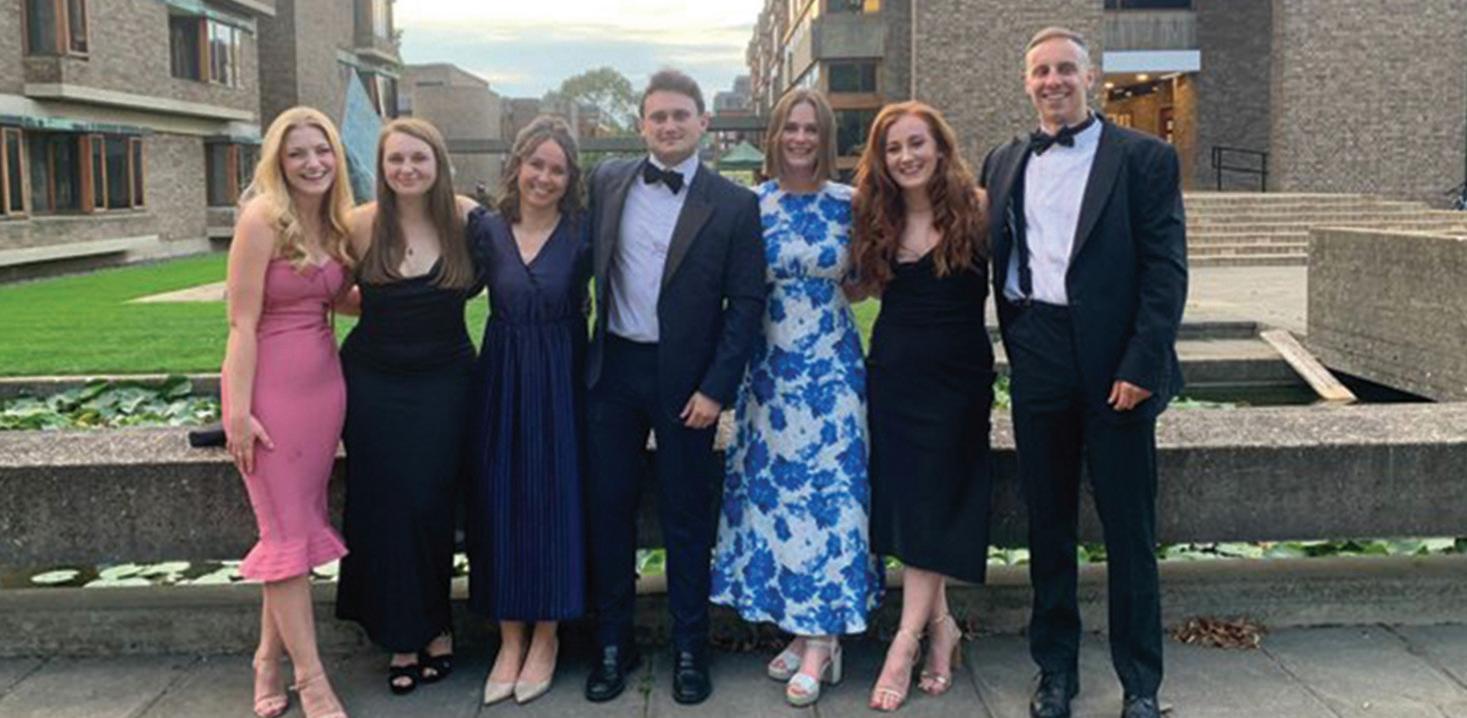
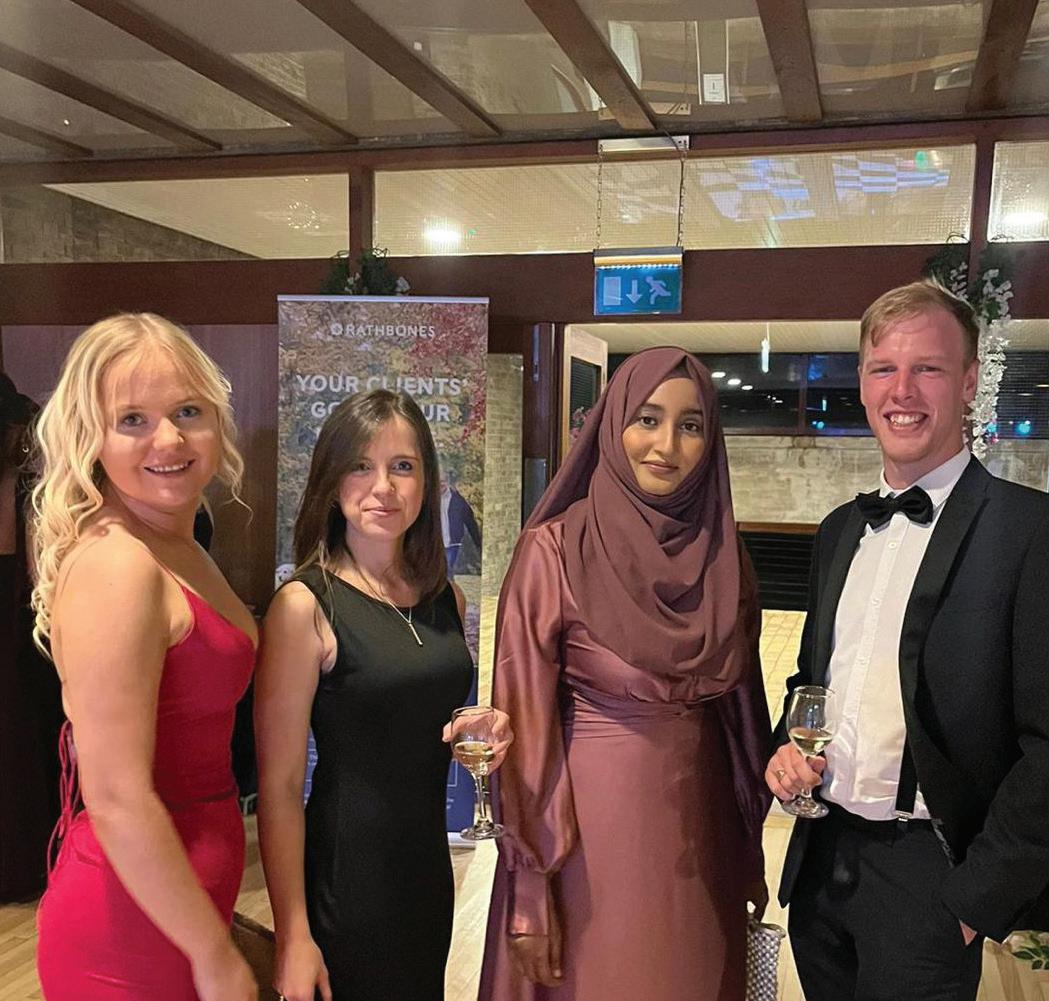
When asked what their favourite part of being on the Committee is, Jonny said, "I love all the opportunities to meet legal professionals from all of Cambridgeshire. Learning from others about the world of Wills, Trusts and
We've had a jam-packed summer at the CJLD! Our members have had the full Cambridge tour, from punting along the River Cam, to grabbing a slice of Domino's finest on Parker’s Piece, to targeting our competitive side, slinging darts by the station.
Probate is an added win!". Olivia shared her thoughts too, "It's the opportunity to get creative for me - I love writing about our good work in an inspiring way, and creating posters and social posts to make our community more visually stimulating and accessible. Ultimately, we're here to support junior lawyers, and I love that my role enables me to do this in a colourful way!"
In terms of what’s next, Olivia is "taking some qualifying leave at the moment, enjoying some down time before taking the next step as an NQ. It's important to take time for ourselves

to recharge – especially after 5 years of non-stop studying and training!"
Jonny is moving full speed ahead into his new role at Ashtons LLP specialising in Lifetime Planning. Meanwhile, Nicola has qualified into the realms of Private Client & Contentious Trusts at Mills & Reeve whilst Abbie has qualified into Serious Injury at Irwin Mitchell.
As always, if you are interesting in joining the CJLD, then please do drop us an email at cjld@gmail.com, and if you would be interesting in joining the 2024 committee then please do get in touch!
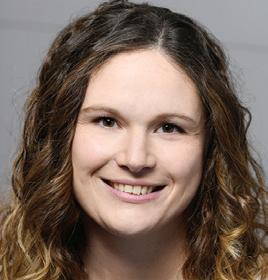
OurJune picnic in the park event which was almost rained off ended up being a lovely, surprisingly sunny, evening at Fort St George pub on Midsummer Common.
One of our favourite annual events, crazy golf at the Tivoli, was as popular as ever in July. Some treat it rather more seriously than others…
We introduced a new one-off fabulous location for our Summer BBQ 2023 and 75 of you joined us on the Varsity rooftop for spectacular views across the city and good company, food and drinks. CYPG were able to heavily subsidise the tickets this year and, budget permitting, we may consider this venue again due to its popularity.
Sadly, our annual punting event did get rained off due to the unreliable British weather this Summer so hopefully we have better luck next year.
We ended the Summer on a real high with the CYPG / CJLD joint Summer ball at the beautiful Churchill College.
We have had a fantastic Summer of events at CYPG and have been so pleased to see so many of our members, new and old, engaging.

music and let our hair down! This year didn’t disappoint and 155 members joined in the festivities. Our charities for 2023 are Cambridge Rape Crisis Centre and East Anglian Air Ambulance, so this is a great opportunity to give back and enjoy a fantastic night. This year we raised over £1,700 for our charities and we are grateful for everyone’s generosity.
We still have a few events left this year including food tasting on 26 October 2023 – details on the website and by email shortly.

We will also have one of our annual favourites, wine tasting, on 17 November and our Christmas party in December so watch out for these events too.
The ball is always a really special occasion and a chance for us all to get together to eat, drink, dance to live
By way of reminder, CYPG events are a fantastic opportunity for likeminded young professionals living and / or working in the Cambridgeshire area to meet each other. Our monthly social gatherings offer you an informal opportunity to network and be introduced to new friends and to catch up with old friends. Our relaxed and fun approach is a big success and reflected in our ever-growing membership numbers.
Our members come from all walks of life – doctors, bankers, lawyers, surveyors, teachers, engineers, accountants and IT gurus to name a few. Finally, we don't define "young"... if you're interested in what we have to offer, you're young enough to join!
If you aren’t already on our mailing list, do visit our website cypg.co.uk/ and subscribe or follow us on Instagram: cambridgeyoungprofessionals or on facebook: www.facebook.com/ CambridgeYoungProfessionals
We hope to see you soon.
I have to admit, I was slightly horrified when I was asked to contribute to this column. Firstly, I’m nowhere near retirement (unless there’s something no one’s telling me) and secondly, the list of previous contributors are very illustrious. What could I possibly add?
Buthaving thought about it further, it struck me that maybe that was the reason I should contribute – because I am only half-way through my career (okay, maybe a little more than that…) and will possibly have a different perspective. So, here goes: six lessons I’ve learnt at the half-way point of my career:

1. Invest in your career. I think that lawyers and law firms are like people and houses – it’s very rare to find your forever home as the first place you buy. Some people are serial movers; every three or so years, they are off to pastures new. Others spend a decent decade at one place before they finally move on, usually only taking the leap after they’ve really, truly had enough. But finding your forever home is important – putting down roots, investing in the future, getting to know others and building strong friendships is so important. Law firms are strange, in that when you retire as a partner, you don’t take anything with you – you are a custodian of a business until it is time to move on. If you get the opportunity (or indeed can make the opportunity) to create a legacy – do so – it is an incredibly satisfying thing.
2. Be yourself. But also strive to be the best version of yourself. When I first became a partner, I received a lot of advice about doing X or not doing Y. It was all very well meant but I realised quite quickly that it was exhausting trying to behave like someone else, and actually, my real strength lay in just being me (with all the positives and negatives that that may involve!) but equally, you can’t be complacent - you have to work at being the best version of yourself that you can be. Get to know your colleagues well – know what motivates them and what worries them, what are they good at, what do they enjoy, what do they hate, what do they dread. Get people to play to their strengths. Everyone is different and that is great – it adds colour to opportunities; an extra dynamic. I hear people sometimes raise concerns about the attitude and viewpoint of future younger generations – but realise that these generations are your future employees, partners and clients. You need to be able to meaningfully engage with them all. Challenge your own perspective and thinking. I know I have to.
3. Enjoy it. Okay, I’m not talking side splitting laughter 24/7 – but if you are constantly unhappy, then you need to change something. 6.5 years ago, I was working in London for a big City/International firm, commuting 4.5 hours a day, and completely miserable. I had two very young children who I never saw, and my life just evolved around taking trains and working. Now I cycle 15 minutes to work, I see my children all the time and I am so much more fulfilled. You don’t get this time back, so make sure you use it wisely – work out what is important to you, and make sure you enjoy it.
4. Make plans. Short term plans, long term plans. Formal plans, informal plans. Back up plans. Vague ideas. Master plans. It doesn’t really matter what sort of plan it is, but the main thing is to think about the future; where you want to be, how you are going to get there, what you want to do. But also be prepared to ditch those plans, change them, think again – don’t become enslaved to them. As Tim Minchin said in his address to the University of Western
Australia in 2013 called 9 Life Lessons (YouTube, I highly recommend it), be careful of focussing too far into the future and missing the bright shiny thing in the corner of your eye. Always be open to other things and opportunities – say yes to things. Years ago, I used to do something for charity every year – it started off with some fairly run of the mill stuff - cycling from John O’Groats to Lands’ End, and then abseiling off a building in Canary Wharf, but rapidly escalated into motorbiking around southern India and taking up skeleton bobsleigh (I often jokingly refer to this period as my misspent youth, but actually I think it was very well spent…). I found myself being regularly asked to do really interesting things with incredibly interesting people – just because I was open to trying new things and meeting new people. To this day, I find myself getting
involved in interesting things (in April 2023 I became Under Sheriff of Cambridgeshire), mainly because I’m prepared to say yes. So, make plans, but be open to ideas.
5. Make things work for you. When my children were really small, I used to get up early with them (I am not pretending I had a choice in that…) and have a couple of hours to hang out with them before taking them to nursery – which meant that at the end of the day, my husband would do the pick up and put them to bed, and I wouldn’t feel I’d missed out in not being around for that – as I’d already got my time in, earlier in the day – and then I didn’t have to stress about leaving work at a specific time. I’m not saying that’s the best or only way to do it – but that worked for me and my personal set up. I know that’s not how most people organise their
lives – everyone is different. There’s so much flexibility now – be creative and make it work for you.
6. Look after yourself. My husband was very ill a few years ago, and it was a very difficult time. But as he started to recover, it made me think about my health and well-being and how I could be in the best shape, both mentally and physically. I took up exercising again for the first time in a decade and I really make a conscious effort to look after myself properly and I feel great as a result and, mentally, I feel pretty bullet proof. Life is a marathon, not a sprint, and all that. You are never going to look back on life and regret looking after yourself properly. As a lawyer, your biggest asset is you. So, as they say, just do it: make time for yourself; you will be a better person and a better lawyer if you do.

There’s a new variety of roles available to lawyers, opening up a much wider career path for lawyers at every stage of their career.
Whilst legal career paths once had few variables, there is now a far greater divergence in both the routes that legal careers are taking, and the roles available within them.
The questions that we as recruiters face as people consider their career options may not have changed much – “what are the realities of moving inhouse?”, “would a move back to practice be possible?”, “I’m not sure what my options are with my specialism?” – but the answers have certainly broadened.
It is now possible to take your legal skillset in almost any direction that encapsulates a wider business remit without its own specific qualification.
Historically we’ve expected Partners move to General Counsel if looking for something broader, but the opportunities now exist within practice with a much broader commercial remit, and the appeal of a portfolio career under your own control is increasingly attractive.
With the additional boom in ALS and Legal Ops businesses appearing across the market there isn’t even a need to continue in a ‘traditional’ legal role, but to play an increasingly important part of the legal sector as it continues to be driven by and adapt to technology.
Add to this the increasing interest among GC’s, whose roles and responsibilities have widened enormously in the last decade, to go back to their roots in practice or take their learnings in to advisory positions such as NED and Trustee appointments, and the breadth of options is clear.
For General Counsels still looking to progress we can now also advise on CCO, COO and MD roles as UK businesses begin to understand and mirror US operating models, and the opportunity
for a seat at the table, historically difficult for lawyers to attain, is now tangible.
And for those who have operated within a niche specialism, there is also increasing appetite to bring these skillsets inhouse rather than rely on external counsel for day to day matters. From real estate to patents, finance or disputes, there are a growing number of inhouse opportunities.
All of this allows lawyers an unprecedented amount of choice and opportunity when considering their career as a whole, and there is no one –or right – way to go.
For over 10 years at Errington Legal we have been able to support lawyers at every stage of their career. If the objective is to return to private practice having been in house or to move inhouse for the first time, we are able to offer clear advice, an overview of the market and how best to position legal professionals for the role they want to secure.
Sean Dodsworth Associate Director – Errington LegalSecond Edition
By Professor Adrian Briggs KCISBN 978 0 19288 814 5
Oxford University Press
Oxford Private International Law Series www.oup.co.uk
HOW DOES PRIVATE INTERNATIONAL LAW WORK IN ENGLISH COURTS POST-BREXIT? READ THE DEFINITIVE WORK ON THE SUBJECT: NOW IN A NEW SECOND EDITION FOR 2023
An appreciation by Elizabeth Robson Taylor MA of Richmond Green Chambers and Phillip Taylor MBE, Head of Chambers, Reviews Editor, “The Barrister”, and Mediator
The publication of this new edition of ‘Private International Law in English Courts’ from Oxford University Press, part of the Oxford Private International Law Series - is nothing if not historic when you consider that the first edition was published eight years ago in 2014.
Since then, the world in general and the United Kingdom in particular have had to tackle one upheaval after another, starting with the Brexit vote in 2016, the impact of which was exacerbated by the dismaying and disruptive effects of the Covid 19 pandemic.
But, as is pointed out in this latest edition of this important and authoritative work of reference, it is Brexit, which (as expressed in the Series Editors Preface) confronts us with the necessary task of ‘re-surveying and rebuilding the landscape of the conflict of laws in England and Wales.’
In addition, that the book’s erudite author Professor Adrian Briggs KC has undertaken ‘the role of chief surveyor painstakingly charting the shoreline to see what the receding tide of European legislation has left behind and seeking to build around it with the materials... offered by our own constitutional order: shattered statutes, complex rules of procedure and an ever-growing mass of cases.’ And he does it very well indeed.
With these bewildering realities in mind, how does one cope? Or, in the words of Professor Briggs, ‘how... does it feel to have taken back control?’
Obviously, there is no simple answer out there to this conspicuously complex - and by now, oft repeated - question. Indeed - and obviously, there is a multiplicity of answers to a multiplicity of questions linked to the complexities of this issue.
What this book does is to provide practitioners with the insights, the guidance and the techniques needed to function successfully within the new landscape of international law. This new edition, says the author, aims ‘to show and explain how private international law works in English courts, using the jurisprudence to help to paint, rather than to overwhelm, the picture.’
Certainly, this distinguished text delivers plain speaking, thought provoking and practical content. Copiously footnoted throughout, it features logical aids to navigation, including a detailed table of contents, (plus a summary of contents) and a fourteen-page index. Its twelve chapters cover every pertinent aspect of what an intrinsically complex area of law is, including: tools and techniques... jurisdiction... ancillary measures... foreign judgments... contractual obligations... non-contractual obligations... property... corporations... adults... children... and finally, arbitration.
Also note the more than forty pages of tables of cases and of legislation. Practitioners in international law everywhere will no doubt regard this book as an essential purchase.
The date of publication of this second hardback edition is cited as 25th September 2022. The law is stated as at 22nd September 2022 (the author’s 66th birthday!)
Lessons from Literature
By Max BarrettISBN 978 1 78742 949 9
Globe Law and Business Ltd
www.globelawandbusiness.com
AS WORDS ARE THE BASIC TOOLS OF ADVOCACY, ALL LAWYERS SHOULD READ THIS BOOK
An appreciation by Elizabeth Robson Taylor MA of Richmond Green Chambers and Phillip Taylor MBE, Head of Chambers, Reviews Editor, “The Barrister”, and Mediator
Does law link with literature? Yes, of course it does. Both are about words: words and their intrinsic power to influence when effectively used, bearing in mind that while good writing does influence - great writing, for good or ill, exerts power.
As the author of this book, Max Barrettwho is also a judge - states very simply that ‘the law consists of words’ - hence the necessity of cultivating a clear, lucid and “polished” writing style, especially
when you consider the vast amounts of paperwork and documentation most cases require.
So if you’re a lawyer who writes well, get this book - a recent publication from Globe Law and Business. It will inspire you to write even better, superbly well in fact. Or, if you’re already a superb writer (lucky you) you will be pleased to be reminded that good writing emanates from honesty and clarity of thought.
As you can immediately detect from the title, the focus of the book is less on “good” legal writing, than on “great” legal writing. And note the sub-title: ‘Lessons from Literature.’ As the publishers point out, the book provides lessons, mainly statements of opinion on the art of brilliant expression from a noteworthy selection of undeniably brilliant writers of the past whose work continues to inspire. And even if you may disagree in part with what some of them say, you cannot fault the way they say it, or indeed the quality of the advice they offer.
E. M. Foster, for example, offers advice on ‘writing and voice’, focusing on tone... vocabulary... rhythm and cadence... and much, much more. Other writers featured in this volume include D.H. Lawrence (yes, him), Guy de Maupassant, Thomas de Quincy, Thomas Hardy, Henry James, Robert Louis Stevenson, Anthony Trollope, William Hazlitt, Virginia Woolf and more besides. And if at this point you are asking why only one female author (??), your query will no doubt inspire another book.
Certainly, this book may well answer - or inspire further debate - on the concern expressed by judges, for example, on the evidently deteriorating quality of written submissions by all too many lawyers of late - barristers as well as solicitors - and judges too, as we are reminded that ‘the “triple crown” of judgment writing is ‘clarity, simplicity and brevity.’ Note too, the appendix on 'Writing for the young and vulnerable.’
In all, the book presents readers, primarily lawyers, with a distinguished work of scholarship on a subject that is all too rarely discussed. The encouraging prospect is that this book will in general, raise levels of awareness, particularly in the legal profession, that words - the basic tools of advocacyshould be used wisely and well.
The date of publication of this new hardback edition from Globe Law is cited as 16th February 2023.

Personal relationships are still the heartbeat of business success, despite the increasing use of technology. Personal relationships convey how we value one another. Personal relationships enable us to have empathy with one another’s situations.
In his seminal book, “How to win friends and influence people,” Dale Carnegie wrote:
"If there is any one secret of success, it lies in the ability to get the other person’s point of view and see things from that person’s angle as well as from your own."
Business relationships then are as much about understanding the challenges we all face in our daily encounters.
The search industry has seen significant changes in recent years. Massive consolidation has seen so many of the traditional search companies swallowed up into larger corporates. We have to find ways of differentiating our service offerings, building that trust in client relationships, and delivering services which conveyancers feel add value to their business.
Don’t get me wrong, consolidation has brought with it huge advances in technology and customer experience. Gone are the days of endlessly calling suppliers to order reports, collating them manually, printing off reams of paper and hand delivering the search to the office…. and good riddance too! With the exception of local authority searches, most of the reports are now available same day, with many returned in minutes.
The delivery platforms are slicker, smarter, more intuitive and spot potential risks that might need to be accounted for, and errors in search requests. But some of this technological advancement has come at the expense of good, old-fashioned customer service. The personal touch. Do we rely on technology too much? Are chat bots, apps and portals what our clients really want and need? What happens when things go wrong? People need reassurance, they need to be able to pick up the phone, or send an email, and feel as though somebody is taking a personal interest in resolving their issue rather than “chat” to a faceless bot or send messages via portals.
I recently won back a client from a rival supplier. When I asked what it was that brought them back to us they said that they felt as though they were a number, rather than a client. It was the personal touch that was missing from their communications; they didn’t feel as though they ever spoke to the same person twice. There wasn’t a familiar voice at the end of phone when things went wrong (as things inevitably do in conveyancing!).
In our experience 90% of orders go through with little to no intervention required. But that 10% is where relationships are made and broken. This is where knowledge, experience, and expertise really make a difference. Recognising that the conveyancer is almost certainly under pressure, whether it be from the client, agent or the other side, and being able to take that weight off and deal with the issue through to completion is a critical part of the business relationship. Whether it’s a query on a report back which requires clarification, or chasing up an expedited service. It's about trusting that the job is going to get done right, first time.
The challenge when introducing technology is that you take a step back from that personal touch. You risk losing the experience and expertise provided by the people when you are over-reliant on the technology. At Geodesys we have people who have been with us since the start, 25 years (and counting!), no amount of technology will replace their understanding and expertise. They are an integral part of our account management and customer service offering. They know the search industry inside out.
The key is getting the right combination of technology and people.
Going back to Dale Carnegie’s quote; the organisations who can empathise with the clients, and understand how to respond, will be the best at winning friends and influencing others.
Kay Toonis
an Account Manager at Geodesys


The EWI has written to the Civil Procedure Rules Committee calling for the removal of a rule in the new intermediate track for civil claims that would limit expert reports to 20 pages.
28.14 (3), set to come into force on October 1st 2023, includes a statement that unless the court orders otherwise, "any expert report shall not exceed 20 pages, excluding any necessary photographs, plans and academic or technical articles attached to the report."
A limit on report length would be a significant change for Expert Witnesses, with the potential to impact the work of experts and the quality of expert evidence, too.
From October 1st, civil claims cases between £25,000 and £100,000 can be allocated to a new intermediate track. It’s been introduced in an attempt to create certainty of legal costs that are proportionate across a wider range of civil claims.
Rule 28.14 (3), introduced without any consultation with the legal and expert witness community, was added to Part 28 amendments rather than making an amendment to Part 35, which would have signalled a significant change for experts. As such, its introduction was only recently highlighted to EWI and our membership.
Our letter to the Civil Procedure Rules Committee strongly urges the removal of 28.14 (3) from the draft amendments ahead of the new track coming into effect.
In the letter, EWI CEO Simon BerneyEdwards writes: “It can only be assumed that the logic taken by the committee is that cases between £25k and £100k are less complex and therefore Expert Evidence can and should be restricted in order to save costs. If this is indeed the logic used, we would strongly urge you to reconsider.”
Elsewhere in the letter, we explained the reason for reports exceeding 20 pages:
“Reports tend to be over 20 pages because it is important for experts to include logical reasoning, refer to other opinions, and incorporate summary paragraphs.
All of this is in place to support the court in decision-making. The introduction of this arbitrary page limit will compromise the report and the ability of the Judge to assess the technical aspects of a case. Indeed, in advance of a Judge’s involvement, it is good, well-structured expert evidence that assists the lawyers in settling cases avoiding the need for trials.”
Using feedback from highly-experienced EWI members from various professions, our letter outlines a number of issues presented by the new rule, including:
Cases with a claim value of less than £100,000 are not always straight forward Particularly in Medico-Legal, Construction and Forensic Accounting cases. Plus, at early stages in a claim it’s not always possible to calculate the value until after various expert witness reports have been obtained.
Restricting the number of pages to 20 is arbitrary, with no clarity on what to omit. Different types of reports will have different requirements, which may vary according to profession, whether opinion is required on breach or quantum, and whether there are differences in factual or expert evidence to address.
Expert witnesses are required to meet their full obligations under CPR35, PD 35 and The Guidance for the Instruction of Experts in Civil Claims, which may not be achievable with a limit on report page numbers.
If there are numerous facts on which
an expert needs to base their opinion, then the report must be able to accommodate them.
Limiting the report length may mean information is removed, leading to a greater number of queries and a diminishing quality in the presentation of reports.
Our letters also suggests that, if the main requirement is to reduce the costs of expert evidence, the instruction a of a Single Joint Expert should be considered: a cost-effective option in lower value cases.
The letter concludes:
“In our view, expert witnesses should be well trained in their duties, must know that they should work efficiently and that their reports should be concise and clear – no longer than is necessary to assist the lawyers and the Court.
But it is for experts to determine the length of the report is each case, based on their instructions, their expertise and scope of opinion, and the details of the case.
We believe that the introduction of this rule will compromise the quality of expert evidence and good decision making. Ultimately, this will have an impact on the administration of Justice, the support provided to the courts, and the outcomes for those involved in litigation.”
We eagerly await a response from the Civil Procedure Rules Committee and will update our members in due course.
USER SIMON BERNEY-EDWARDS.
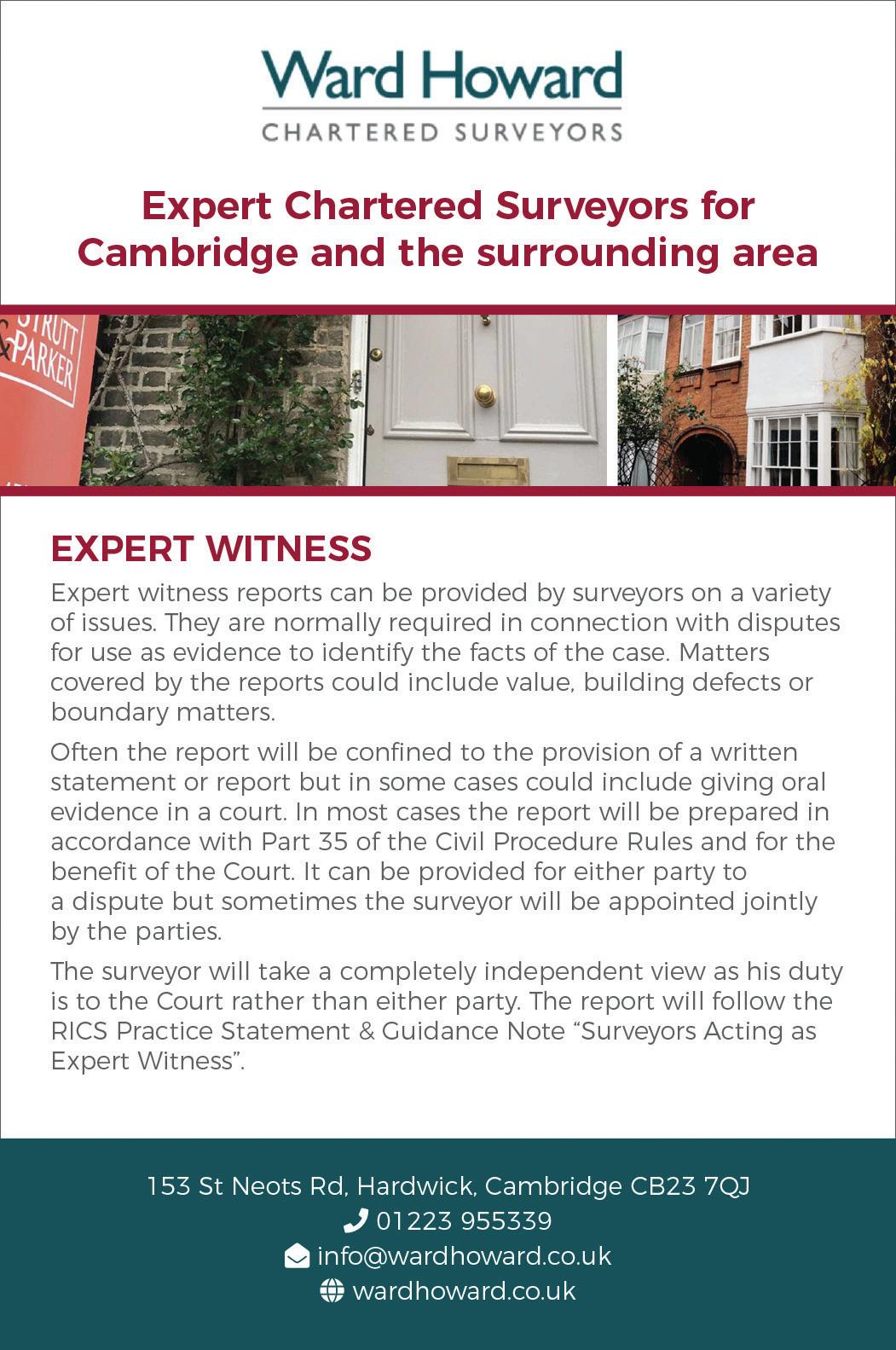
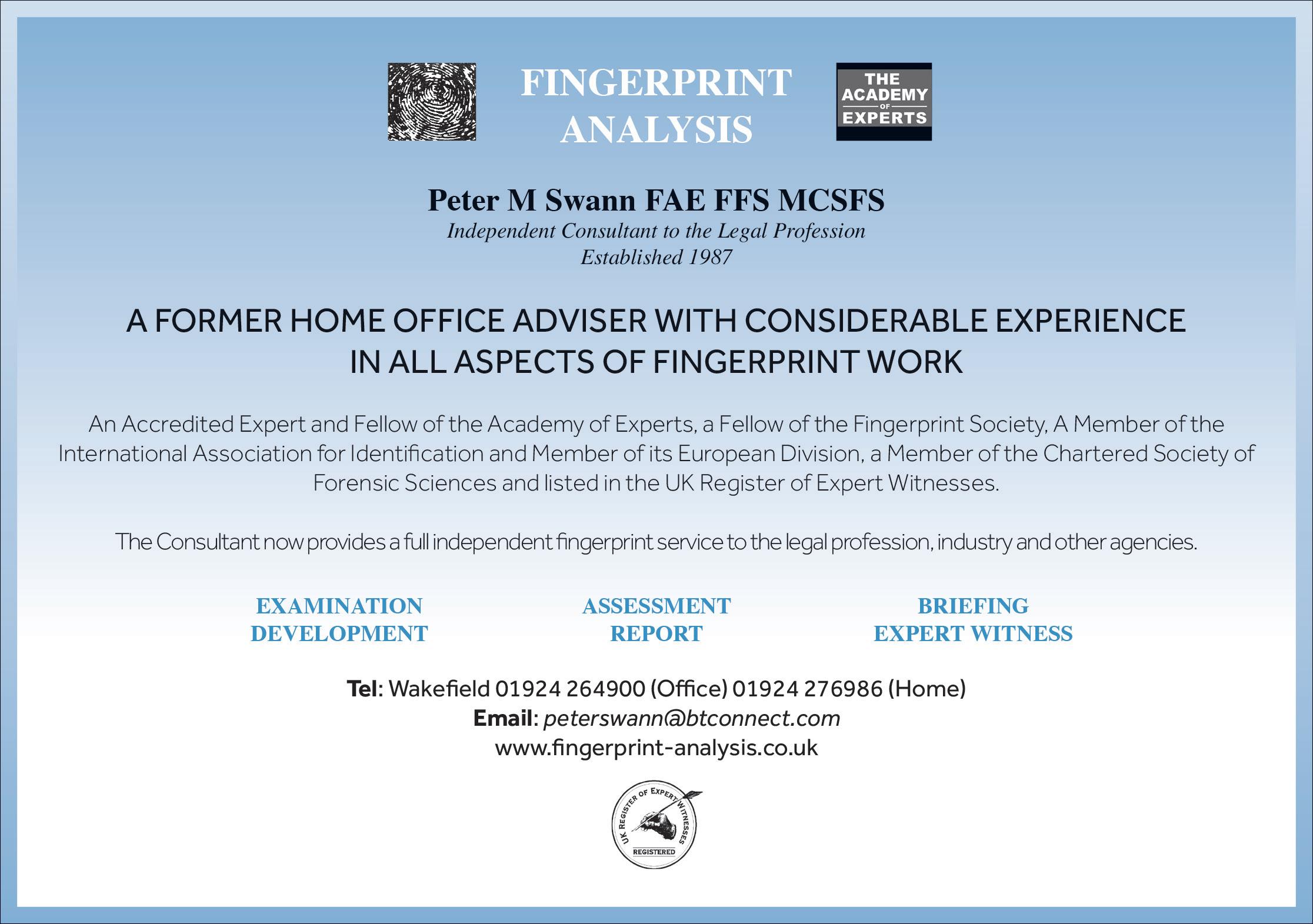
We are frequently instructed as forensic accountants in relation to family disputes. In the last year we have been employed on a number of cases involving families with interests in farming, construction, property development and investment.

Typically, families who have been shareholders or partners in family businesses for a number of generations reach a point where two sides of the family have conflicting views of future strategy. In farming businesses there can be a disagreement between those family members who wish to focus on farming whilst other family members wish to diversify into alternative sources of income.
The forensic accountant may be instructed to look at a number of aspects including:
• The valuation of one or more businesses and individual’s interests, and the latent tax liabilities associated with the ownership.
• The historic record of shareholder or partner cash extraction from the business.
• The funding of property acquisitions.
• The commerciality of related party transactions.
• The manner in which business interests can be restructured and assets divided, or cash extracted to split the family interests.
In this recent case, Fiona Hotston Moore of FRP Forensic Services advised a family over a lengthy dispute regarding the ownership of several properties and a number of businesses, with the matter settling out of court.
An ongoing family dispute with regards to the beneficial ownership of approximately 40 companies and a number of properties resulted in the matter being listed imminently for a court hearing. Fiona was appointed as party expert on behalf of one party, being a group of the family shareholders, to determine historic distributions and what inference could be drawn in relation to the beneficial ownership of the companies.
The Forensic Services team was instructed to undertake a financial investigation to review the bank statements, companies accounts, tax filings and accounting ledgers over a 10-year period. From the detailed investigation, the team was able to give an opinion on the distributions to family members and the implication in relation to beneficial interest in the companies. The team also gave an opinion on the beneficial interest in a number of properties, based on tracing the flow of funds. The findings were collated and submitted through an expert report and Fiona then prepared a joint statement with the other party's expert.
Following the submission of the reports and just two days before the scheduled court hearing, the parties reached a settlement. The instructing solicitor noted, ‘can I also please add my thanks to you and the team for all your hard work on this and being so flexible with your time. The quality of your report will not have been lost on the other side and no doubt will have played a part in their desire to settle’.
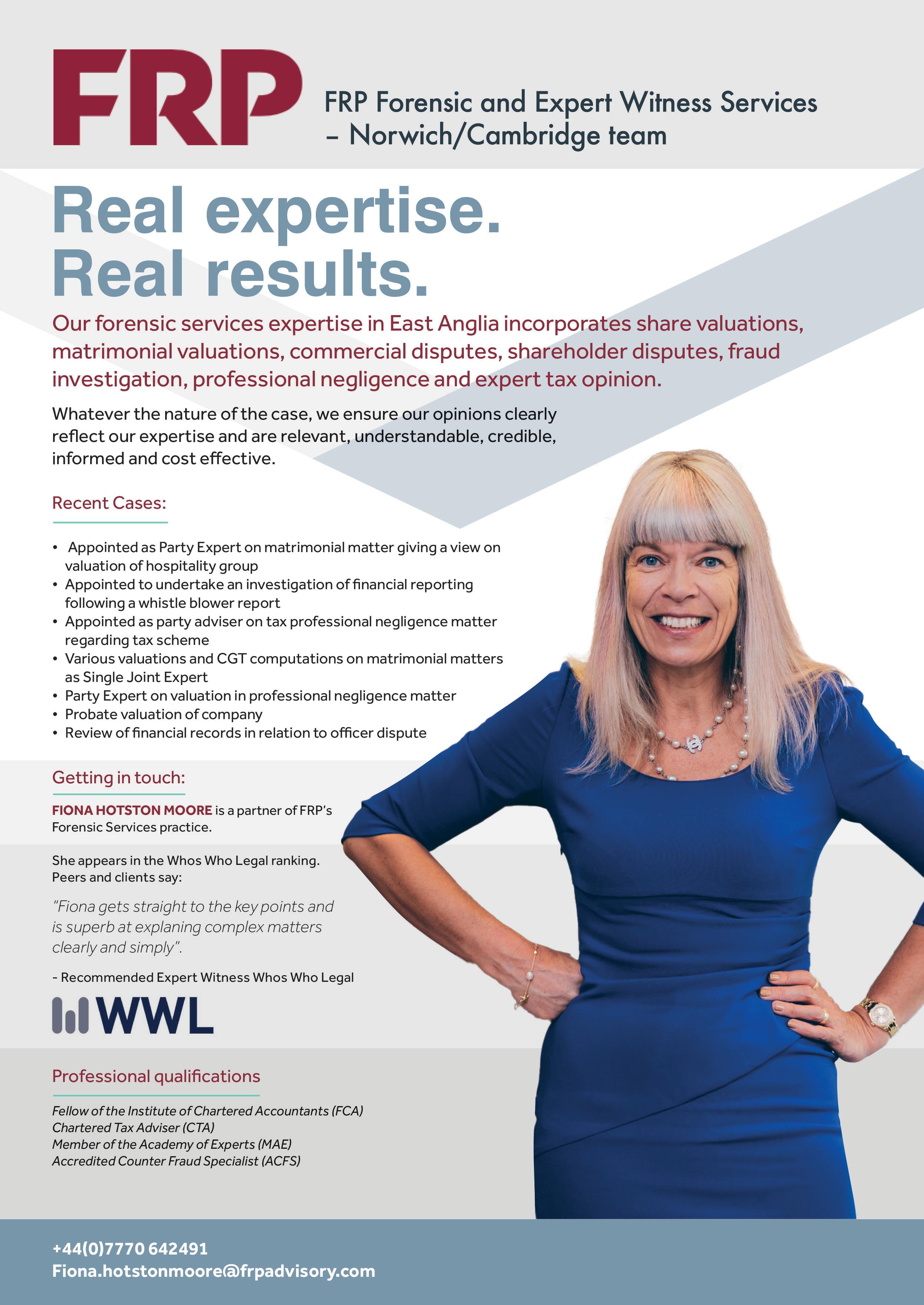

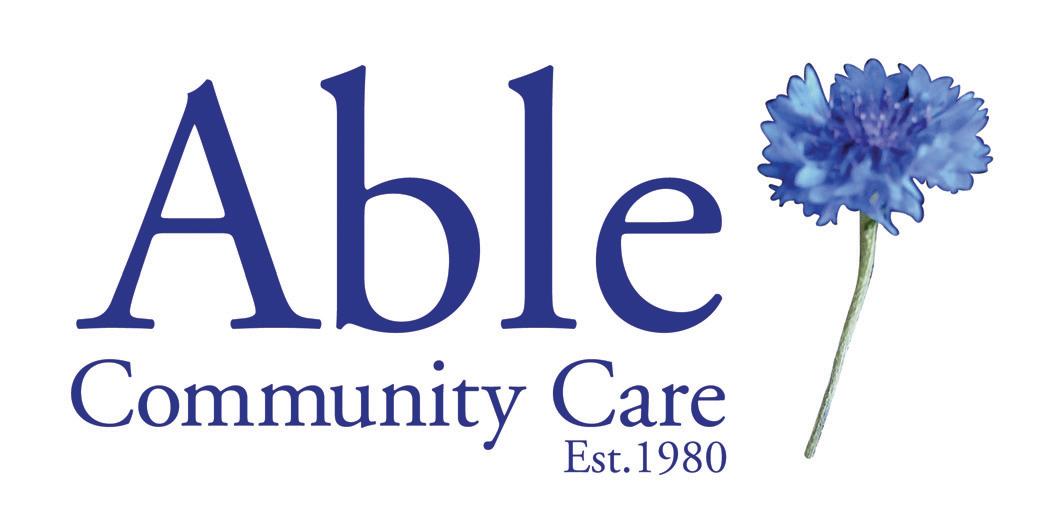

This year’s Remember A Charity Week (11-17 September) charities and the legal sector are coming together to open up conversation about gifts in Wills. A new ‘Be Remembered’ campaign has launched online, inspiring the public to consider how they wish to be remembered and how they can shape their legacy by leaving a gift to charity in their Will.
This news comes with the release of a consumer poll, which reveals that three in five (61%) UK adults and almost half (46%) of the over 40s have not yet written a Will.
Attitudes towards leaving a gift to charity in your Will are positive. Two fifths (40%) of UK adults say they would be happy to leave a gift to charity after taking care of loved ones and even more (46%) say they would feel proud if a loved one left a donation to charity in their Will. Just over three fifths (62%) recognise that you don’t need to be wealthy to leave a gift to charity in your Will and acknowledge that even a small gift left to charity can make a difference and help to fund vital work.
Remember A Charity Week brings together around 200 member charities and the campaign’s network of over 850 solicitor firms and Will-writers, legal partners and government to encourage everyone to consider leaving a gift to their favourite charities in their Will, alongside gifts for family and friends.
The consortium also runs a free Campaign Supporter scheme for legal firms.
Lucinda Frostick, Director of Remember A Charity, says:

“Remember A Charity Week is a fantastic opportunity to celebrate the phenomenal impact of gifts in Wills on charities and charitable services across the UK. Thanks to the support of solicitor firms and Will-writers, along with a wide network of legal partners, one in four professionally-written Wills now include a charitable donation1. That income has never been more valued or more needed.
“This week, we’re hoping to encourage more firms to get involved and use this platform to spark conversation about Will-writing more widely, encouraging clients to consider how they wish to be remembered and to inspire even more people to consider leaving a gift in their Will."
To find out more or take part in Remember A Charity Week (11-17 September 2023), visit www.rememberacharity.org.uk
1 Savanta Will-Writing Tracking Study, 2023

REMEMBER A CHARITY
WEEK IS A FANTASTIC OPPORTUNITY TO CELEBRATE THE PHENOMENAL IMPACT OF GIFTS IN WILLS ON CHARITIES AND CHARITABLE SERVICES ACROSS THE UK
LUCINDA FROSTICK
JUST OVER THREE FIFTHS (62%) RECOGNISE THAT YOU DON’T NEED TO BE WEALTHY TO LEAVE A GIFT TO CHARITY IN YOUR WILL...
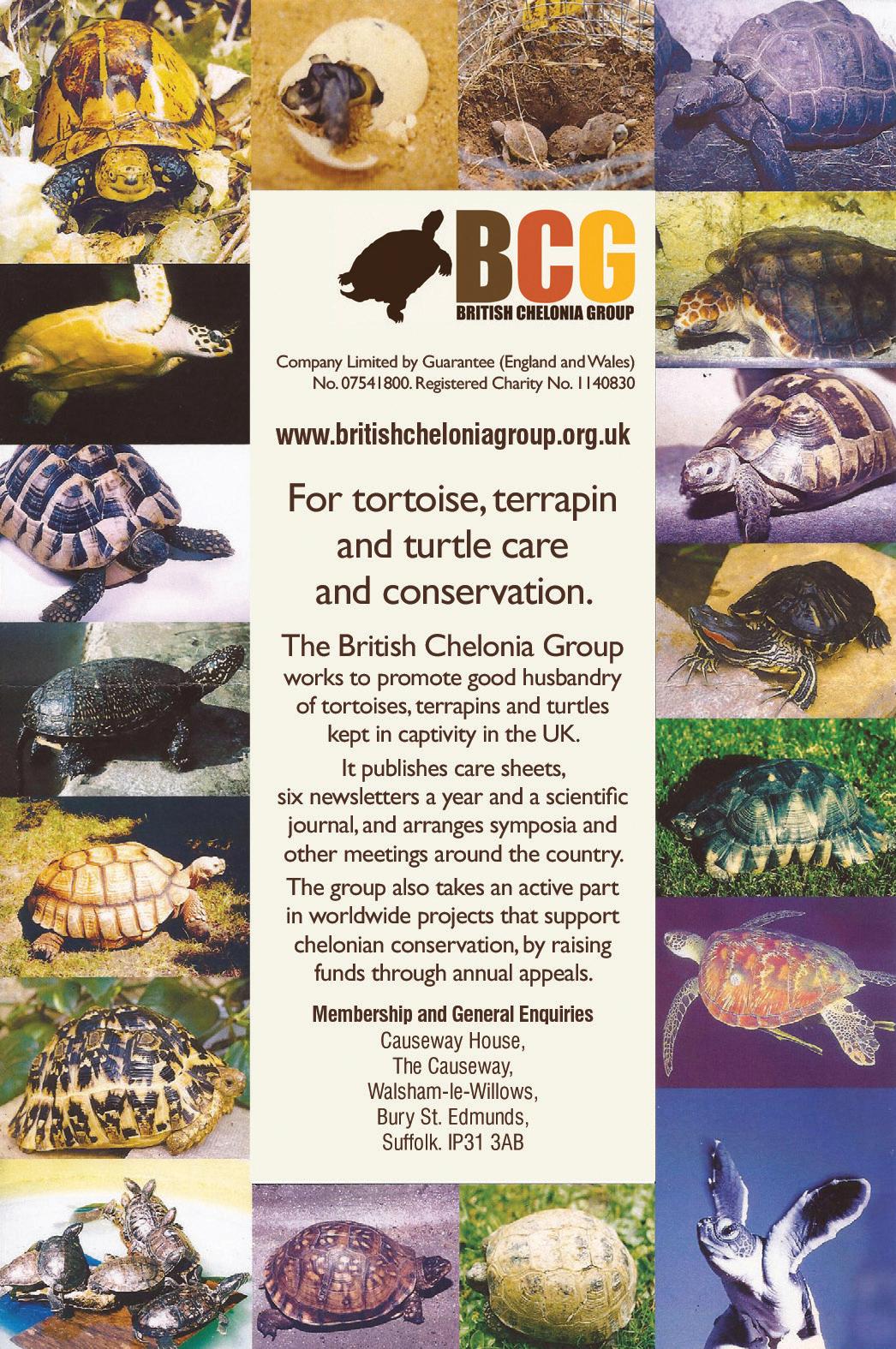
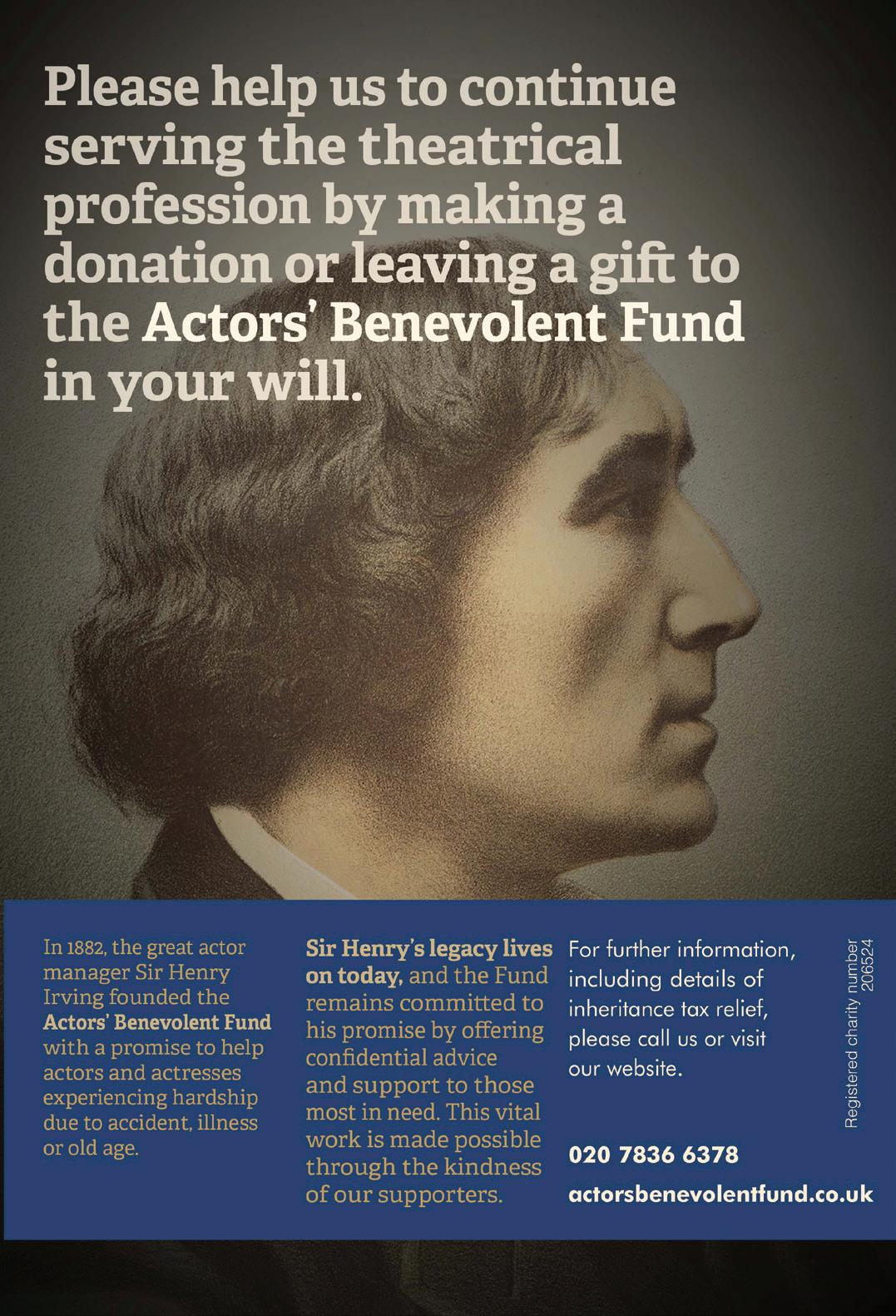
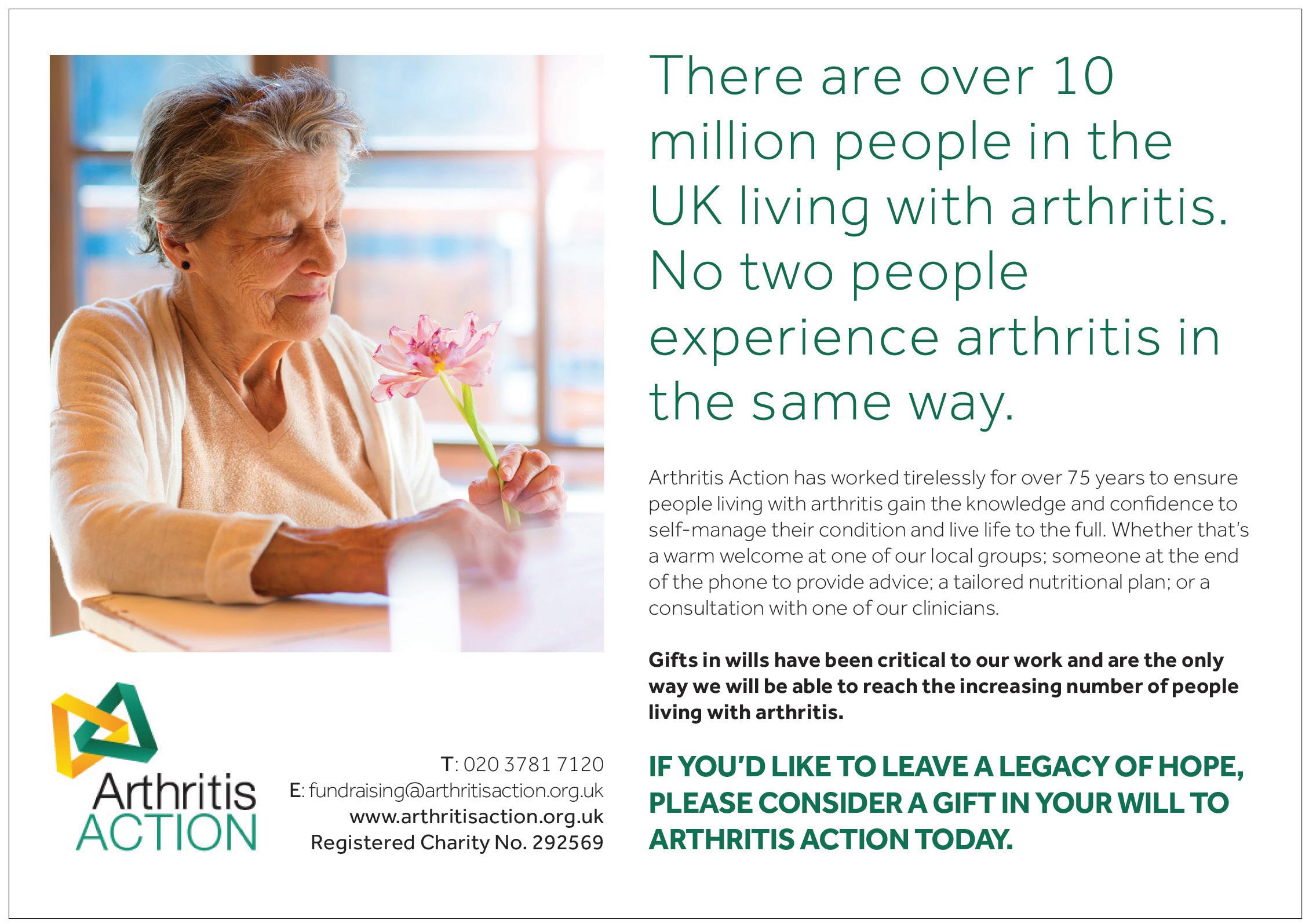

Thismolecule, deoxyribonucleic acid (DNA) and the technology that has developed around it, is now used in a host of applications - one of these, the determination of biological relationships, is the subject of today’s article.
Our objective today is to provide a primer for the use of DNA in legal situations, particularly family law. It is the case that technology, ethics, law and society sometimes struggle to keep up with each other. This is particularly so with DNA technology, where we grapple with issues such as consent, parental responsibility, multiple parent babies, paternity fraud, sperm donation, postmortem testing, surrogacy, immigration to the UK and pre-natal parentage testing.
The majority of DNA testing is to determine the biological father of a child or paternity, where we are trying to prove that a tested male (the alleged father) is, or is not, the true biological father of a tested child.
There are also tests for other biological relationships such as for siblings, twins, grandparents and aunts/uncles. These tests are used for resolving family disputes, immigration status and of course many instances of sensitive child circumstances involving local authorities.
DNA is a chemical string of code which is unique to an individual. It is contained in nearly all the cells of your body (mature red blood cells are the exception) and is inherited half from the mother and half from the father. We examine this code in several ways to look at individuals and population characteristics, diseases (prediction and diagnosis), ancestry, to identify individuals in forensic cases and in our case, to decipher human relationships.
The DNA is extracted from a few cells taken from the buccal cavity, a painless and non-invasive procedure which uses a cotton swab rubbed around the cheek of the mouth. We can use nearly any tissue but for controlled sample collection for legal testing, we always recommend the buccal swab route.
In an identity test, the DNA is then examined for regions of similarity between the tested persons. In the case of a paternity test, the DNA test report will then confirm that the tested man is (usually with a certainty in excess of 99.999%) or is not the biological father of the tested child, which is given with 100% certainty. These results are termed either an inclusion (he is the biological father) or an exclusion (he is not the biological father).
There are two types of test in general use, with the common parlance of a
“legal” or “accredited” test, or a “peace of mind/personal information” DNA test. This is an important distinction, because only a legal/accredited test may be used for a legal purpose, such as changing birth certificate.
In an accredited test, the appointed company will take control of the entire sampling and identity verification process, so that there is in effect a chain of custody of the sample from the subject to the laboratory.
In a “peace of mind” test, the individuals are allowed to take the samples themselves and then return them to the laboratories; of course, in such cases we then rely on the participants to take the sample from the correct individual. This is unsuitable for any legal purpose.
A common issue relates to consent and who has Parental Responsibility for the child. For DNA testing we must have “appropriate and qualifying” consent for each sample to be tested.
Consent is required from each adult party that is to be tested and if the test involves a child under 16, then we must also have consent from a person with Parental Responsibility for that child.
This is generally the mother, but may be the father under certain
“Part of our DNA” has become a catchphrase throughout languages worldwide and it refers to a characteristic that is innately part of something. Obviously, this is often misused but the phrase does convey a key principle, that all living things contain a molecule which codes for the essence of life, in whatever species, plant, animal or microbe.
circumstances or indeed some other body (sometimes jointly shared with the parents), such as the local authority.
We are often asked about the participation of the mother in the process, which is in fact required for a legal/accredited test. With the mother’s DNA analysed in the test, in the case of an inclusion the percentage probability of paternity is generally much higher.
This is because the child’s DNA is inherited half from mum and half from father…but we don’t know which half! So by identifying the mum’s DNA, we can then see that the remaining DNA must come from the father.
Sometimes, mum or alleged father(s) are not available for sampling and we
then seek to obtain a DNA sample from other close family members so that we can attempt to establish a presumed parentage via DNA from siblings, grandparents or uncles and aunties.
While the figures for relatedness will not be as strong as for a direct paternity test, we can often gain useful probabilities which provide helpful supporting data when taken together with other evidence. Cousins are biologically too far removed to be helpful in this process.
These are all of course somewhat complex issues and if you require more detail please get in touch or go to our website for more information.
Details as follows:
Neil Sullivan, BSc, MBA (DIC), LLM, PhD is General Manager, of Complement Genomics Ltd (trading as dadcheck®gold).
The latter is a company accredited by the Ministry of Justice as “A body that may carry out parentage tests as directed by the civil courts in England and Wales under section 20 of the Family Law Reform Act 1969” and by virtue of directly running laboratory services which meet the stringent and internationally recognised ISO/IEC 17025 standard.
Please see: dadcheckgold.com
Tel: 0191 543 6334
e-mail: sales@dadcheckgold.com



Danny Curran is the founder and Managing Director of Finders International, an award-winning Probate Genealogy firm. Finders International's main area of business is to trace, identify and locate missing beneficiaries to estates, property and assets all over the world. Danny has now become the spokesperson for the industry with features on The Morning, Forbes and local BBC radio.
Danny: Finders was set up in 1997, I started as a sole trader, but here we are 25 years later as the largest UK firm in our field.
WHAT DO YOU ENJOY MOST ABOUT FINDERS?
Danny: I think what I enjoy the most about Finders is the fact we can make a difference to many different people's lives. The work we do often surprises people, it's a windfall, pennies from heaven, it's something unexpected and something that can have a really positive impact on them, whether they are due a small amount of money or a large amount of money often it doesn't make any difference.
Aside from the money, there's also, of course, the human story and the fact they're discovering something about their family history often that they never knew.
Danny: I think what I'm most proud of with Finders is creating a company with a very positive culture. The fact that we've grown to the size that we have, and maintained our ethics, our standards, bringing and introducing environmental factors to the company. We have got an ISO 14001 Environmental Standards, plus we are living wage employer - all these ethical things are really good to do and if you can do them as an employer it’s a really good feeling.

Danny: The most surprising thing about the journey with Finders so far has that we've managed to incorporate and learn
from the experiences that have happened to us over the years. We've maintained a very business-like approach. So from being a newcomer to the industry we've reached a point now where we can lead the conversation with the legal profession and make a positive impact, not just for our clients but also for the employees of the company as well.
Danny: Finders began filming BBC One's TV series Heir Hunters quite a few years ago, and following on from that, we've really embraced the media conversation around probate research as the stories we have are often very positive and heartwarming. Sometimes it's very bittersweet stories where people find money they're due money from someone they never knew, and would've liked to have known, but I think what's been great is that we've been able to embrace the media stories and create greater standards for the industry at the same time.
WHAT’S NEXT FOR FINDERS?
Danny: The goals for the future really are to try and enhance and improve the reputation of the probate research industry. I think we've come a really long way since I started. In 1990 it was very much, a kind of, maverick industry that many lawyers had not even heard of, but now that we're becoming more entrenched in the legal process and we're forming key partnerships with lawyers and others.
I think what I want to do is make that relationship with the legal world on a par with lawyers so we can help them and support them in everything we do. It's a very important part I think, it helps with standards, for the lawyers themselves for the world of probate research and to try and make sure that we maintain the standards going into the future.
Danny: We have an amazing team of people here and we've done so well over the years to maintain a very positive culture, for people to enjoy what they're doing and have some pride in what they're doing. It's not an ordinary job it's a very unusual job and I think we've captured the imagination of not only the public with the media and the TV, but also within our employees who've stayed with us for a long time, they can see the good we're doing and the difference that we're making.
So a huge thank you to everyone who has worked with us over the years and for current staff and all the people who have endured working with me for 20 plus years – a very big thank you!
Finders International have a range of services for both the Private and Public Sectors. For more information visit our website www.findersinternational.co.uk or contact us on freephone 0800 085 8796 or email contact@findersinternational. co.uk

